Sven Erlandson's Blog
November 25, 2025
What are the biggest blockages to men doing this healing stuff?
People come into the area of getting healing with all sorts of prejudices and fears, some of which do tilt towards genders. It demands no stretch of the imagination to see how a great many men have struggled and do still struggle with the idea of going inside themselves and unlocking, seeing, feeling, and talking about the deeper stuff of life, particularly their own personal histories.

There are all sorts of fears that corrupt the therapy/self-therapy process for many men, many of these same fears afflict others, too, not just men.
1. Feelings. I don’t think it requires some giant rehash that we’re all already familiar with to simply say that men have been taught forever that feelings are weak, feelings are for girls, and you should just stuff feelings down and power through life. It ain’t pretty, but it’s true. This is what boys have been taught, often just as much by mothers as by fathers, oddly enough. As a result, a fear has built up in a lot of men, not just because they fear being perceived by others as weak and being perceived by that inner antagonizing voice of their childhood conditioning (from parents and culture) as weak, but also they fear feelings because if they’ve grown up in that mentality that means they also have no practice at feeling things. It’s virgin territory, which makes it disorienting and scary, because they just don’t know how to do it. So now, something that already has a stigma around it (‘feelings are weak and if you feel feeling you’re weak’) has added to it the feelings of not being proficient at it, which bumps into another definition of manhood that still hangs on, ‘Men are what they do.’ Thus, if a man cannot ‘do,’ he is less of a man. It’s a ding on his identity and ego. So, to not have the ability to do something, in this case do feelings (or to feel like you’re failing at something or are disoriented when trying something) only adds to the dislike for the experience of therapy and/or self-therapy.
2. Victim Mentality. I believe what has happened in Western culture, more specifically the U.S. is that the definitions of masculinity have been evolving rather rapidly, over the past few decades, and been met by an understandable and, perhaps, necessary balancing voice against them. The evolving definitions allow for a more complex and nuanced understanding of masculinity, while the older version holds fast to the need for strength and toughness, at all costs; damn the nuance. As a result, there’s been such a build-up of loathing against perceived weakness that there also has been a build-up of stigma around the idea of someone else bearing any measure of responsibility for where you stand in life. This “Woe is me. Poor me! Poor me” life view, as they see it, is the ugliest of societal rot, because it encourages helplessness and the very seeking of handouts and a free ride they despise.
3. Wallowing. Hand in hand with the victim mentality is the fear of wallowing. Many folks, not just men, fear that if I open up to the pain, I’ll get stuck in it and will end up wallowing in it. But, generally they won’t use the word ‘stuck,’ but will use ‘wallowing,’ which has a much more pejorative, negative connotation. In other words, they don’t like the perception. They fear that this work of going into the deeper stuff and allowing up the feelings, as well as uncovering the core, BS beliefs you’ve been taught about yourself will lead to them being stuck in the feelings, which will lead to them being perceived as weak and a pussy (and, yes, for many men that does mean that they fear being seen as a woman or little girl, who can’t just toughen up, pack that sh*t down, and power through).
4. Blaming. Similarly, many men, old and young, fear being perceived as caught up in a mentality that does not take ownership of one’s present lot in life, as that would be considered weak. While the old understanding of masculinity hates the idea of young people blaming others for their lot in life and wanting a handout, as a result, the folks of that old understanding are all too happy to blame that same young generation for the very decay of society. But, all irony aside, many men fear being seen as blaming someone for their own depression, anger, sadness, misfortune, losses, or what have you. For, that would be an indicator of weakness and not manly. This can make therapy quite tricky. I explain to clients who get stuck in this fear that every problem has a source, every effect has a cause. If you do not drill down to the root cause, any solution you create will be a half-solution, doomed to fail. It’s like the X-Men series of superhero movies had X-Men Origins, originally planned to show the origins of certain Marvel characters; and the Star Wars saga had the prequels to the original. It’s not about blame, but origins of problems. Whether you choose to blame the person or not is a choice, but the origins cannot be denied, once they’re laid out. So, by being fearful of blaming, the client or perhaps you are throwing out the possibility that origin is not some internal flaw in you. By understanding the origins of problems, we can be relieved of the weight of blaming ourselves, which is the ironic result when people are told not to blame others.
5. Perception. The real fear underneath all of these is perception, how they’ll be seen, either by those close to them, ‘society,’ or that voice inside of them that is the original antagonist, implanted decades prior. So, it’s not the blaming or feelings themselves, but how they’ll be perceived. Hell, the mere fact that they’re in a therapist’s office, assuming they came voluntarily means they allow for the possibility of conversations about feelings and going into some feelings. Because, every damn person knows that therapy means going into feelings. So, if they’re even in my office, they want to talk about feelings, or at least recognize that their feelings, whether bottled up inside or on the surface and spilling out on loved ones, are part of the problem and need to be dealt with. I mean, is anyone so naïve as to think they can go to therapy and not talk about and get into feelings? The fear is, in part though not entirely, how this therapy stuff gibes with their understanding of their own masculinity but also, more importantly, with society’s understanding of masculinity. They need an out. They need a way for the work of therapy to fit within the broader understanding of toughness, or they need enough pain to have happened in their lives that they’re ready to change their own definition of manhood.
At the root of all of these fears is cowardice – allowing fear to keep you from taking action that your mere presence in the therapist’s office acknowledges is necessary. Or, if you prefer, the very expert you’re paying money to is saying that this feelings work is necessary, but your fears of doing that work are causing you from getting the healing that you’re paying for, in the first place. Your fear is driving your inaction. That is literally the working definition of cowardice.
 What really is a Badass?
What really is a Badass?When you name your business ‘Badass Counseling,’ it’s pretty clear what sort of person you are and what the counseling is going to be like, or so it would seem. My girlfriend, who built an extraordinarily successful business in Manhattan, NYC, over 25 years, with over 2500 employees globally at her peak, advised me very strong – very, very strongly, actually – against naming my company ‘Badass Counseling,’ thinking it was a horrible idea, going absolutely counter to what people expected and wanted from counseling. That’s how clear the word ‘badass’ is and how much it had the power to corrupt the very counseling practice and process I was incorporating.
I chose the name badass because to be a real badass means that you’ve done the healing work to give yourself permission to be all of you authentically. That means you allow yourself to feel whatever you authentically feel, moment to moment. Your feelings, or that which you allow yourself to express, are not defined by arbitrary definitions of your manhood or identity set in place by someone other than yourself. To me, that doesn’t seem very strong to allow someone else to define what or who you should be or how you should act in any given situation. That’s not badass to just be tough all the time. That’s someone living by another person’s definition of who they should be. That’s a tool. A true badass just allows themself to be, do, feel, and express whatever the hell they want in any given moment, regardless of what all the other tools in the tool bag say. That’s a man, at least as I see it. That’s strength. That’s courage. The courage to be authentic, when you’re surrounded by tools telling you what you should be. That’s a badass.
This is precisely the (what I believe to be) logical framework that I give men (and a whole lot of other tough folks), enabling them to think outside the box and enter into the feelings conversation and work.
As an aside, my girlfriend, not long later, fully admitted how wrong her judgment was in the naming of my company. She understood how the stark juxtaposition of the two terms ‘badass’ and ‘counseling’ were the perfect mix for people who were seeking something different, something fresh, something effective in a new way from the counseling experience.
 The Deeper Fear of Being Overwhelmed and/or it Never Ending
The Deeper Fear of Being Overwhelmed and/or it Never EndingIt has been my experience that, while perception is undeniably a massive issue for many men, when it comes to whether or not to fully engage in counseling there is a far greater fear. This fear knows no gender boundary, however. It’s the near-universal fear of being overwhelmed by all of it – all of the memories, yes, but especially all of the feelings that they know are buried down deep inside. For, it’s those memories and attached emotional charges that storm up on them when they’re alone or in a calm place. It’s the very stuff they, like you, have been running from their entire lives, whether by over-working, constantly staying busy and distracting, drinking, gambling, or any number of other ways of stuffing the memories and feelings down.
It's that overwhelmed-ness that would lead to the wallowing, ongoing victim mentality, and weakness they so fear. One leads to the other. One is the cause, the other the effect which leads to the price of internal torture and the external shaming, or perceived external shaming, from peers or society. So, therapy, feelings, and the like become the third rail of manhood.
Until.
Your soul will win. Your willpower can push you and push you through all manner of life struggles, helping you to bottle up bad memories and pain, helping you to be productive and acceptable in the eyes of a judging society, but that which accumulates in a soul that longs to be free will have its day. In the battle between the will and the soul, the soul always wins. It will chew you up on the inside, because it longs to be free. It longs to have the afflictions beset upon it, over the decades, finally faced, head-on, sorted out and extracted. The soul will drag your ass down into it, into depression or up into a hyper-speed anxiety leading to explosion and the natural crushing that follows. For, it is only when you are broken and still that you will be forced to face the memories and pain of the soul that need to be dealt with.

Those whom the gods would destroy
They first make proud.
-Tacitus, Roman historian and politician
Call it the Universe, the gods, God, the soul, or what you like, the point is that we must be taken down from our self-inflation, not because will is bad, but because it is only when we cannot do it on our own anymore that we finally are open to facing the very things keeping us from our fullest and most authentic selves. What Tacitus didn’t say, or recognize, is that the gods destroy us to break us open for us to finally face the sh*t of our past, our lives, and life itself, so that we may finally have calm that does not scare us and joy that comes from within.
 Journaling Exercise
Journaling Exercise1. How many of these preconceptions do you hold, regardless of your gender? How might they be blocking you in your own work, whether with a therapist or in self-help?
2. Who taught you these preconceptions? More importantly, do you personally actually agree with the ones you’ve been carrying around your whole life, or do you find that you no longer agree with them?
3. If you’re a therapist, healer, psychologist, or clergyperson, which biases do you hold toward men? How might your own biases be adversely impacting your counseling setting, potentially further driving men either away or into themselves?
4. If you’re a woman, do you carry some of these preconceptions and how were they conveyed to you?
5. If you’re a man, are you ready to become more balanced in your belief system? Whose belief system do you need to let go of?
Please feel free to check out my free online moderated community, Badass Counseling Group, on Facebook. But, if you long for a closer community that’s more committed to next-level growth, direct access to me — Sven, and more excellent resources for transformation to greater ALIVENESS, go to www.badasscounseling.com and click on CMTY-PLUS! It’s what you’ve been waiting for!
Thanks for reading.
HAVE A KICKASS DAY!
Click Here to Learn More About Counseling-- Sven Erlandson, MDiv, Is The Author Of Seven Books, Including 'Badass Jesus: The Serious Athlete And A Life Of Noble Purpose' And 'I Steal Wives: A Serial Adulterer Reveals The REAL Reasons More And More Happily Married Women Are Cheating.' He Has Been Called The Father Of The Spiritual But Not Religious Movement After His Seminal Book 'Spiritual But Not Religious' Came Out 15 Years Ago, Long Before The Phrase Became Part Of Common Parlance And Even Longer Before The Movement Hit Critical Mass. He Is Former Military, Clergy, And NCAA Head Coach For Strength And Conditioning; And Has A Global Counseling/Consulting Practice with offices In NYC, NJ, And Stamford, CT: BadassCounseling.Com
September 29, 2025
Are Addictions Good?
NOTE: I am not an addiction counselor, expert, professional, or in any way trained in anything remotely connected to addiction, addiction-treatment, medical anything, psychological anything, whatsoever. So, feel free to absolutely and unequivocally reject every last word of this article.
I’ve counseled literally thousands of people over the past 30+ years, many of whom had addictions. In every case, I informed them of the above ahead of time, so that everyone was clear and that appropriate professionals should always be consulted when dealing with addiction. Despite that, people keep coming to me, some specifically to deal with their addictions. So, I play the ball as it lies.
As long as we’re all clear on that, here we go.
 The largest ball of twine in the world, as rolled by one individual, not a community, is out on the open road west of the Twin Cities in Darwin, Minnesota, USA. A man started rolling it in 1950 and did so for four hours every day for 29 years. From 1979-1994, it held the Guinness record for the World’s Largest Ball of Twine Spun by An Individual.
The largest ball of twine in the world, as rolled by one individual, not a community, is out on the open road west of the Twin Cities in Darwin, Minnesota, USA. A man started rolling it in 1950 and did so for four hours every day for 29 years. From 1979-1994, it held the Guinness record for the World’s Largest Ball of Twine Spun by An Individual. Your life problems start getting spun in childhood, and either a lot of them get added over time, or only some, or just a small amount. The kid, of course, is not doing the spinning. The kid, is actually the ball of twine, or the ball is being spun inside the child by the powers that be – whomever is raising the child, with extra additions done by siblings, schoolmates, teachers, extended family, play friends, etc. But the bulk of the twine addition is being done by parents, or whomever is raising that child.
Presently, the largest ball of twine by a community is in Cawker City, Kansas, and is much larger than the one spun by the individual. Surprised?
The bigger that ball of twine gets inside the child, the more hacking the child does. (Here’s where I mix metaphors.) See, that ball of twine inside the child becomes a ball of hair inside a cat that it is forever trying to cough up. The cat’s natural instinct is to get the crap out of itself. It is the natural state of the human animal to try to get negative crap out. So, the child is trying to hack it out, whether through anger or crying or ‘acting out,’ generally, because the child has not been taught or developed tools yet for natural expression of feelings, wants and needs, particularly as it relates to emotional/soul pain. The kid is trying to hack out the accumulation of pain being inflicted on her or him. But, very often, it’s not being allowed, or they are simply not taught how to do so. So, the hair ball, or ball of twine, grows. With it (often though not always) anger, laughter, or tears grow too, as those are the most common human reflex responses to trying to release negative energy involuntarily.
Why?
It doesn’t feel good. The ball of twine/pain inside doesn’t feel good. It is uncomfortable. Eventually, as it grows, the discomfort grows and it gets downright painful inside, both in the body and in the mind. The hacking is the effort to alleviate the emotional/mental pain experienced by the child/teen/adult.
But, the damn emotional pain doesn’t get hacked up and out. This emotional impact can be so great that the physiological effect can become more than anger, laughter, and sadness. The body can start to be adversely affected, in terms of maladies. I’ve had adults report having ulcers as young as seven and eight with no medical cause found by doctors. But, as we dug deep we discovered the emotional/soul trauma building before that and peaking in that time.
So, eventually, the child, teen, or young adult tries to make the pain go away, even if temporarily. This is when eating disorders start, drinking, pot usage, excessive gaming, endless activity/motion, and other adaptations develop to try to make the internal pain go away – i.e., to escape the giant ball of twine-pain their life has become. For those hours the child or teen is drinking, absorbed in gaming, or bingeing and purging, they have sweet release from the internal misery that grips them all the other hours of the day.
Should that continue to be effective in helping the young person escape the inner pain for a few hours, or longer, that action will become patternized, repeated, again and again. Thus, the addiction begins, and it serves a very important role in that child/teen’s life – escape from pain. Without being taught the tools for and importance of releasing pain, it would become unbearable to live with internal pain, particularly if more twine is being added daily or weekly, even in small doses or in massive amounts on a less frequent basis. Thus, for the very survival of the animal that is this young person, some sort of mechanism of escape or distraction, is necessary.
Now, it must be stated that because twine gets spun onto the ball in different amounts and speeds in different lives by different families and influences, the point of needing to escape that pain can come much later in life, whether it is college years, late-20s, or later. But, if the ball of twine is growing with the additions of more soul pain, the day of needing an escape from that ball inside is inevitable. It’s just a matter of when.
But, of course, as with all patternized, habitualized behaviors, it comes with a downside, which eventually becomes a massive downside. Even seemingly good patterns, such as fitness/working out, can easily become destructive to the person, in so many different ways – time away from family/responsibilities, excessive running down of bodily energy, extreme mental fatigue, degrading of joints/tendons, over taxation of organs, etc. Similarly, this behavior the young person uses to escape the inner turmoil can begin to affect relationships, self-esteem, social standing, and bodily functioning, to name a few. Perpetuated over decades, these adverse effects can even become extreme or lead to death.
Countless adults do so and have been doing so for a very long time. This is nothing new. Is it that unreasonable to think it could be felt and done by a child or teen of far less mental power and far less accrued soul/emotional pain? Is it that unreasonable to think a young person would be less equipped and courageous enough to get out emotional/soul pain and thus be more susceptible to destructive behaviors, patterns, and addictions?
So, here’s the thing, as that patternized behavior continues, it can lose its power of escape. The human develops a tolerance for it; and it just wanes in power. So, new behaviors might get added to augment, or aid the escape from the ball of twine-pain inside. So, maybe pills gets added to the pot usage; gambling goes with the gaming; cheating (on a lover/spouse) tops off the cocaine; over-parenting becomes the outgrowth or next phase of over-working. And, always the price of the behavior/addiction increases, personally, professionally, physiologically, socially, spiritually.
As life falls apart, more and more, be it in the 20s, 40s, or 50s, and the pain and price grow higher, the individual begins to long for a high that lasts and doesn’t come with the downside of the crash, the hangover, the losses. This is where constructive mechanisms get employed to solve the problem, be it medications, rehab, AA/NA, counseling, different therapy modalities, self-help, religion, or just plain cold turkey.
Often, these mechanisms are just what was needed, and the escape that became destructive to the person’s life got wiped away. This can be manna from heaven for the person, as well as for those who love and care about this person.
Sadly, however, they often don’t work. At some point, old behaviors many times return, as if the root problem never got fixed. This is where I sometimes get brought into the equation of people’s lives, when they’ve tried everything else and nothing works, or nothing sticks. Maybe they don’t come to me for the addiction itself, but for all of the internal problems, relationship problems, and professional problems they’re having. However, woven into it all is the destructive behavior pattern/addiction that invariably gets addressed residually but directly.
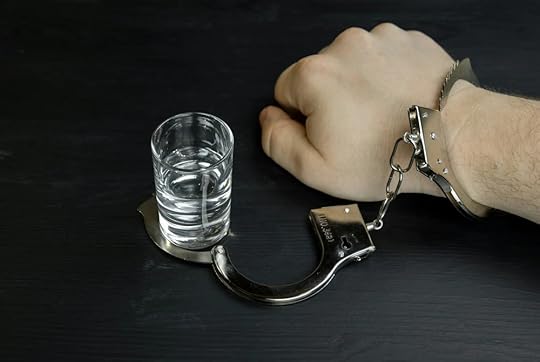 Addiction as Best Friend
Addiction as Best FriendMany years ago, I was counseling a highly successful overseas surgeon. He had been top of class all of his life, after growing up working in the family business where he was doggedly worked by his father and abjectly neglected by his mother. Now, in his early-40s, he was by all metrics a colossal success with not just a thriving practice, but a string of clinics he owned and ran, an adjunct professorship at a prestigious university, two late-teen kids, and a newly minted divorce that he was struggling from but still powering through the effects of.
He came to me to address his large inner turmoil regarding feelings of inadequacy that had been exacerbated by his wife leaving him, the difficulties of his kids, and the interactions he’d been having with his new girlfriend. These feelings of inadequacy would seem tragically ironic to an outsider, given his apparent successes. However, they opened the door to us discussing his lifelong addiction to something that would also seem ironic, or at least odd, to an outsider. This trim runner/lifter was addicted to food and had been since he was 8 years old. This world class surgeon, whose writings and insights had been favorably peer-reviewed and was respected in his work and as a man, had lived and dealt with bulimia for 34 years. He knew damn well the effects of it, and had suffered most of the side effects of it. He had been to treatment for it, seen the best doctors, tried every manner of counseling possible for it. He had even employed the full power of his extraordinary superpower – his own self-discipline that had powered his entire career! – all to no avail. This damn beast pursued him like the hounds of hell, itself.
Enter our work.
We had done quite a bit of drilling down into the real sources of his life pain, before we got to the bulimia stuff. It had been cursorily discussed, but largely ignored. As we more and more fully filled out the picture of what his childhood really was and wasn’t (much of which he fought me on, tooth and nail, but could not deny, because I was simply arguing information that he, himself, had given me in his autobiography and hours of counseling in the first 2-3 long sessions), it became apparent that he had been a terribly lonely child who never felt safe. So, to protect himself when mom wasn’t protecting him from dad’s attacks and expectations, and to save himself from a mom who was negligent and the father wasn’t protecting him from her lack of accountability and denial of love to the boy, he adapted. He acquiesced to the demands of the father and became a high performer, who never missed his marks, because the price for doing so was too high. He knew by primary school that he would become a great doctor someday. Father had said. He knew he would fulfill it. It would please father.

And then, one day, on the side, he picked up a Twinkie, or whatever the 8-year-old equivalent was in his country. And the Twinkie, whether he realized it or not at the time, was different from every other Twinkie he’d ever had. It felt different. Then he picked up another. And, it felt different. It didn’t just light up his taste buds and glide down his throat into his waiting stomach. It registered somewhere else, too. Something else lit up.
Then the pastry his grandmother had left for him. Then, then, then.
And, it began. At eight. 8! Think about that.
That’s where it started. Zero nutritional value, not that 8 year-olds care about nutritional value, generally. The love for food – the experience of eating it – and what it lit up inside him.
But also, knowing he had to get it out of him, because the expectations of physical perfection were not lost on him, either. So, he tried to make himself throw up and couldn’t. He didn’t know how. He tried choking himself and hitting himself in the gut. He tried yelling at himself in the bathroom. Nothing worked.
That night and those days that followed he felt the guilt of what he had done in eating all of that food and worried he might get fat from it, while he thought about how to throw up. He began to hint around how animals throw up with his teacher, telling her about his dog and asking why his dog throws up. He asked the librarian for books on why dogs and animals throw up. As a recognized studious and gifted child, no adult thought anything of it, beyond the inner workings of a hungry mind, when he followed up this dog vomiting question with questions about the human vomit reflex and inducing vomiting. Completely flew under the radar, as the librarian handed him books she had ordered from the regional library, which then became his how-to. At age 8.
His eureka moment came when in his research he learned how to self-induce vomiting to disgorge the very food he was ingesting. He read that there were bad things that could happen. But it would still work. Learning about laxatives only further facilitated what had now been set in motion. The cycle of bingeing and purging began.
Now, here he was, 34 years later, dealing with it, absolutely confounded about why he could not shake this thing that had become a giant monkey on his back, eating away at his health in so many areas, while contributing significantly to his sense of shame, knowing his own dark secret and how ugly it made him feel for how stupid it was in light of his profession.
To all of this I interjected, “Yeah, yeah, yeah, I get it. Bulimia. Addiction. It’s bad. You’re bad. It’s dumb. You’re dumb. You’re a piece of sh*t. Blah blah blah. Got it. The one thing I don’t understand is this; just this one question that doesn’t make sense to me. I don’t understand why you’re trying to stop being bulimic. I sincerely don’t understand.”
Dude looked at me like I was a Martian that landed in his backyard in a flying doghouse with spinning whirlybots on it. “Sven, I just explained it to you, which you don’t need me to do. You know damn well the long-term price of bulimia. Plus, I look like a damn fool – a surgeon, a physician, especially with this illness. I should be able to overcome this.”
“Yeah but,” I shot back, “it’s that ‘overcome’ thing that I don’t understand. Why are you trying to overcome it? Why are you trying to get rid of it? See, I see it differently. You grew up in a mountain of sh*t. Your mom not only didn’t give love, she just checked out of your life completely, while being fully physically present. Dad, on the other hand, was the consummate dick. You’ve been ridden hard and put away wet by him since you were three or four, to the point where your soul was so fatigued by age eight that you needed to escape, and to the point where he still owns you, to this day, his 80 year-old voice bellowing inside your head, never satisfied. You needed something – fricking SOMETHING! – in this lifetime to make you feel good, just for a brief moment, because every other damn minute was this driving, focused push, push, push. So, quite unbeknownst to you, you developed an eating disorder. You had found your drug, food. You amped up your addiction when you discovered a new word, laxative, and became a little thief to support your newfound drug habit, stealing laxatives from the neighborhood apothecary.”

“Right, Sven. So, what’s your point?” he asked.
“So, you weren’t safe. You clearly weren’t loved, unless you hit your numbers for success and perfection. Even then, when you did, you didn’t actually get affection or a trip to the zoo. You were treated like that was expected. You just avoided dad’s disappointment. You were the most lonely kid in the world. And food became your best friend, the only thing on God’s green earth that had the power to shut off your pain, even if only for the three hours you were bingeing and the three hours you were purging. The only thing in college that enabled you to turn off the endless responsibilities and expectations and give you sweet release. While other boys were getting hammered at parties and girls were spreading their legs, often all of them together, you were holed up in a room doing what you had always done, because the booze and girls never gave you the pure valium release from it all that your highly ritualized best friend gave you. F*ck the price! The payoff was so high! You were the brightest kid on campus. You KNEW the price, backward and forward. That’s a living testament to how great the high and sweet release were that your best friend and ONLY your best friend could give you. That is how extraordinarily powerful that craven bitch is. Sure, she takes, but, man oh man, can she put out. She gives and gives, and always has. She can be controlled. And she is the ONLY friend your miserable life has ever truly had.”
I had his attention now.
“And, you want to ‘overcome’ it? That’s just dumb. For as smart as that big frickin’ brain of yours is, that’s just dumb! Bulimia is your best friend, the only thing that has the power, that has EVER had the power, to make you feel good and take away your problems in a real way. You treat it like it’s a pariah, a disease. That makes no sense. It’s not the disease any more than the sore throat or runny nose is the disease. No, they’re symptoms of a virus or infection. Bulimia isn’t the illness. It’s a symptom, at most. Hell, it’s the (self-) medication when no one in the world gave two sh*ts about curing the actual disease. The actual illness was the freaking horrible parenting that child had to endure that has also been living inside of him for 42 years, rife with destructive messages. You think something is wrong with YOU? That’s garbage. That little boy thought there was something wrong with him, too. How could there possibly be anything wrong with a 5 year-old or 8 year-old that could possibly justify him or her believing he’s unlovable? There was never anything wrong with you, and there still isn’t. What a load of sh*t! But, because of their horrible parenting, they taught you to believe you were the problem; it’s your fault; you’re not good enough, ever, even when you’re a world class surgeon and successful businessman and father.”
“So, what if rather than trying to get rid of the bulimia, at all, you kept it? What if you treated it with the respect it deserves – as the only thing in your terrible, miserable life that brought you joy and peace in the valley, and just kept it, for as long as you chose. Then, what if we devoted ourselves to solving the life you’ve been trying to escape from, since age eight? See, if we change the life you’ve been trying to escape from, all these millions of times, then you’ll have no desire to escape, no need to escape. The life itself will be a place of joy, true laughter, and peace. And, the bingeing and purging will no longer be necessary. They’ll just float away. You can still play with your best friend anytime you want to. But, you won’t need your best friend anymore. Her purpose will have been served. The friendship – this glorious, loving, yet painful friendship – will have simply run its course. But you can still talk or hang out together, if you ever want to. She won’t be this evil witch that everyone has so made her out to be. What if we treated her with respect, kindness, and love, and invited her to stay, while we change the life, ‘til you no longer need her? Then it’s a want, not a need.”
You’ve never seen a grown man sob like Arthur sobbed for me, in that moment. A lifetime of hurt, pain, sorrow, shame and more shame came flushing out of him. “No one has ever said that to me before. I’ve never seen that before. I – I – I’ve never even thought that was possible. I’ve never even thought that way. How does that..? I mean, of course. That makes total sense. God!” he stammered amid a lifetime of tears and heaving of his chest and soul.
And there it was. The golden key unlocking the whole equation of his life.
He knew the pound of flesh that friend had taken from him, over the decades; far more, actually. This friend idea was no delusion. It was the most sensible thing he had ever heard on the subject, and he flat out said so.
Two weeks later, he reported that since his last session he had thought about bingeing and purging three times, two of which he was conscious, in the moment, of not even wanting to do it. It was more just out of habit, or ritual. Only one of the times did he actually do it, and that was because he actually wanted to, “not because I needed to,” he said.
And, that right there is the shift I hear about, again and again, after this conversation with folks who’ve struggled with addiction, “The need to do it has dramatically decreased. Now, I can do it if I want to, but I don’t neeeed to, because I’m not running from my life anymore. I’m not bad or ‘not good enough’ anymore. And, I don’t see my ‘addiction’ as the enemy anymore.”
 Call to Review: Diamonds and Raw Sewage
Call to Review: Diamonds and Raw SewageThe real shift in my work with the person, as with all of my clients, and the shift that needs to happen in your life is two-fold:
Beginning to name and extract the voices inside you that name you as the #1 villain or disappointment in your life, as if you are innately problematic and unlovable; and
Beginning to create a life that you have no desire to escape.
The biggest mistake people make when trying to fix their lives is they focus near completely on #2 to the near full omission of #1. And, that just ain’t how it works. In fact, as I discuss in my book , which you need to go back and re-read certain sections of, that is the grand mistake nearly everyone makes: trying to get happier by doing more things that make them happy. You can do all the happy sh*t in the world, but if you still have those soul-sucking messages in you from your past, you’ll forever be fighting those messages inside you. You’ll be driving the car of your life with one foot on the accelerator and one foot on the brake.
In that regard, I’m going to encourage you to go back to There’s a Hole in My Love Cup and read the chapters about the 3 Binary Gates, Diamonds and Raw Sewage, and Messages. I’m not going to get into it here.
The ugly work is the naming and extraction of those old messages. That’s the real reason people hate therapy, real therapy. It requires going into the very stuff they’re trying to self-medicate themselves from. It’s all the stuff you don’t want to touch. But, that’s the difference between real healing and skimming the surface, coasting. Going into that stuff is the price of real happiness.
That is the price of life’s most precious commodity: peace.
No amount of highs, escapes, medications, happy things, or addictions exceeds peace. Nothing. That is what age teaches. No, that is what the chaos, losses, pain and disappointments of youth are trying to teach those who will listen and reflect on them, but too often we just want to run from and distract from the very thing with the most power to teach and grow us. Why? Too painful. So, we escape, distract, and run.
That is the choice of life: Face the pain to heal and grow or run. But eventually the pain that all that running inflicts on your life exceeds the pain of going in and healing. Nonetheless, it’s the choice we all face, year in and year out.
 Questions for your journaling and growth
Questions for your journaling and growth1. Begin to ponder and bullet point list the sources of the giant ball of twine inside you. What are the messages you received about you? From whom? What are those old sources of pain that are still not healed and are simply sitting inside of you, growing?
2. What are the addictions or habits you’ve developed to make the pain, anxiety, anger, and sadness from those original twine sources go away, even if only for a few hours? Are you so focused on the addictions and habits that you’re able to conveniently keep your eye off the real sources of pain?
3. Isn’t it just easier (read ‘far less painful’) to not think about the real ball of twine and just think about the addictions? Journal about how you’re feeling right now and what you need to really dive into here.
Please feel free to check out my free online moderated community, Badass Counseling Group, on Facebook. But, if you long for a closer community that’s more committed to next-level growth, direct access to me — Sven, and more excellent resources for transformation to greater ALIVENESS, go to www.badasscounseling.com and click on CMTY-PLUS! It’s what you’ve been waiting for!
Thanks for reading.
HAVE A KICKASS DAY!
Click Here to Learn More About Counseling
-- Sven Erlandson, MDiv, Is
The Author Of Seven Books
, Including 'Badass Jesus: The Serious Athlete And A Life Of Noble Purpose' And 'I Steal Wives: A Serial Adulterer Reveals The REAL Reasons More And More Happily Married Women Are Cheating.' He Has Been Called The Father Of The Spiritual But Not Religious Movement After His Seminal Book 'Spiritual But Not Religious' Came Out 15 Years Ago, Long Before The Phrase Became Part Of Common Parlance And Even Longer Before The Movement Hit Critical Mass. He Is Former Military, Clergy, And NCAA Head Coach For Strength And Conditioning; And Has A Global Counseling/Consulting Practice with offices In NYC, NJ, And Stamford, CT: BadassCounseling.Com
August 26, 2025
How Much Effort Does Healing Require?
There are few patterns I’ve seen more consistently over the years, than the proclivity people have to give in to fear when it comes to self-help and the whole realm of healing and growing self.
Click Here to Listen- Story after story of people ordering one of my books then letting it sit on the bedstand for months or a year. Or reading the first chapter, getting their ass kicked by it, and closing it for weeks into months.
- I’ve had clients shut down in session, stonewalling me, session after session, even though I persist in going to the well of their deepest fears and troubles in a variety of different ways.
- Heck, I’ve even had clients so terrified of truths, admissions, or the implications of admitting truths, even to themselves, that they’ll shut down the session in the middle of our conversation, literally hitting the “End Meeting” button on their computer, after barking, “Keep your money. I’m done.”
- Or, with the always optional homework assignments, I frequently get the client who session after session, forgets, neglects, or outright refuses to do a particular task (usually a letter to a parent that I instruct them not to send), even while performing every other task on the to-do list. The blockage is so great that they refuse to do it, literally month after month, to the point where I’ve had numerous clients send an email between sessions thanking me for my great work, but they’re convinced they have healed and feel great about life. Or they will say that the letter (to the parent) really isn’t necessary at this point because they’ve made up with that person, or what have you. In other words, people will quit counseling rather than go into certain issues at the deepest levels.
That’s how powerful fear is. As discussed in my bestselling book, There’s a Hole in My Love Cup, the pain in your life must become unbearable before it can push you through your fears. The fear is of the stuff that is dragging you down most inside.
Thus, the work of healing and growing self to full authenticity and ALIVENESS, is conversation between you and your own fear. Always fear. Everything is fear, which is why, again, everything boils down to courage.
 Without Focus, There is No Success
Without Focus, There is No SuccessHowever, within that larger context of the ongoing conversation between you and your fear are other sub-issues, not the least of which, is focus. Back when I was an NCAA Head Coach for Strength, my athletes would constantly hear me bellowing from across the weightroom, nagging them, up their asses about one thing, above all else:
“There is no success in any venture in life without the capacity to focus your mind!”
I have waited tables with a 12-table section, and I’ve counseled clients who’ve just sent me a 30-page autobiography that I’ve studied. Both require immense focus. I’ve been a competitive, record-setting powerlifter and an abject failure at home repairs. Both require focus. I know the requirements, successes, and pitfalls of focus. One’s ability and willingness to focus on anything directly correlates to the likely success of the venture. Lack of focus radically increases the likelihood of failure.
Self-work and even therapy with a trained professional require cracked out focus. It demands focus, even more than it demands speed or intensity. It demands the willingness to sit in, and welcome it all: the discomfort, the pain, the implications – when you so badly want to distract, pick up your phone, walk away, start cleaning, skim the surface, or do anything to RUUUUUUNNNNNNNN, just like you always have.
See, getting past or through those giant fears that have kept the pain and discomfort packed down, bottled up, and stuffed away, demands something far stronger. It demands the pain itself giving you the courage, as mentioned above. And, that courage is the gas in the engine. But the engine, itself, is the focus. You have to sit down in it, and read the books, do the journaling, write the letters you don’t send. You have to keep going into, and back into the crud. You have to plan it, block off time, even when life wants to intrude. You have to make it a priority, just as you would the gym or anything else that you know is good for you and you want to do, but it’s an inconvenience.
 Kenny, the Blown Adoption, and the Price of New Life
Kenny, the Blown Adoption, and the Price of New LifeKenny and his wife had been married 5 years. They were both successful in their businesses, but she more so than he, by his own admission. He totally adored his wife. He was a very sweet man.
They had been deliberating and planning for over a year to adopt two babies from overseas. They were both fully on board. She had held off on kids for career, but she made the final decision that it was time. For biological reasons, they chose to adopt. The paperwork was a long, laborious process that, because of Jan’s work and travel, Kenny did most of on his own. He also built out what was to be the baby room, installing double of everything. He’d invite his buddies over to demo walls and plaster new ones. He sucked at plumbing, so he had a plumber buddy from his time in the Navy to help with a better tub for bathing the twins and better sinks in the bathroom. Constantly, his work, his dreams, his conversations with Jan were about this new giant step for their lives.
Then the bomb dropped. One week before they were to fly overseas to get their twin babies, Jan sat him down, shook her head, and said she can’t go through with it. Not only that, but she wanted to take a six-month separation from Kenny, leaving him within the week.
To say that Kenny was devastated is an understatement. He begged. He tried to remind her of her vows. He pushed her to look at all they had planned. He tried everything. But it didn’t matter. Her heart was hardened. She knew she had to go. It was not to be a prelude to divorce or even a legal separation, she just needed some time alone. He had her put that in writing. She kept telling him she wanted to stay married to him but just needed time alone to figure herself out.
Everything down the drain.
What would unfold, over the next month, then the rest of summer, then into the fall, would be the unraveling of their marriage. The revelation of infidelity on her part, her gambling addiction, and a seemingly never-ending barrage of new revelations forced Kenny further and further into the decision of whether to do the healing work or stuff it all down, like he had done his entire life.
For whatever reason, whether because he and I had developed a rapport and trust or because he was sick of living with so much crud inside, he chose to keep counseling with me. At first it was weekly, then after a few months, every other week, then every three weeks. Some of the money that had been socked away for the twins (who were now a lost dream), he committed to his own counseling, to the tune of 3-hour sessions, which occasionally ran longer. He doggedly went after everything I could throw at him: every writing assignment, every book I recommended, every song I told him to listen to, and every movie I told him to watch. He attacked and attacked, relentlessly, with the same singularity of purpose that he had devoted to preparing his house and life for twin nuggets and, really, so much else he had done in life.
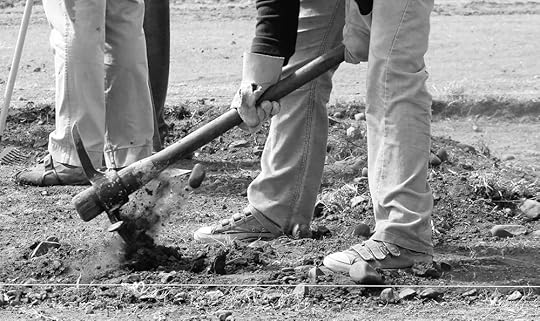
And, it was brutal. He cried his ass off at times, both in session and out. It took a while to unlock his rage, but we finally got at it. Then that rage became the dominant force in him for weeks into months. Deeper we went, not just into the marriage, infidelities, and countless lies, but especially in tracking it all back to his own childhood. Kenny was fearless. Well, he was full of fear, but he kept attacking. He stayed his focus and just kept at it, to the point where he would remark things like, “I love journaling.” He would come prepared for a long session with a list of new insights from his self-work and things he wanted help sorting through or getting new angles on. The guy was an animal.
What was down there, deep inside? A boy who had been conditioned to give, at all costs, constantly, to everyone, but especially to those closest to him. For, that was the only way he could have worth. That was the only way he could hope to get approval and love. It was that incessant giving of self that drove his deployments in the military, the over-extending himself in volunteer work, always saying yes when his mother constantly asked him to do stuff for her, and when it came to going way above and beyond to serve his woman, as he would say. He realized he had been conditioned to believe that he only had worth when he was doing something for someone else; otherwise, he was worthless. It was brutal work, but he kept going in and going in, daily.

Then, at almost the exact six-month mark, long after realizing his wife had never been who she presented herself as, long after realizing the marriage was toast and divorce papers had been filed (by him), we had what he called “the first happy session since the day the bomb dropped.” So, we took some time to read over my notes from our first two sessions. He was fascinated and really blown away by how much sadness and softness he had for that man he had been, just six months prior. But that enabled him to see with blazing clarity how radically far and fast his transformation had been. I too was impressed by the velocity and magnitude of his change. He was like one of those athletes a coach just loves; no matter how hard you push them, they gobble it up and do the work, because they just get it and want to push harder. It was in that session that Kenny made this comment,
“You really do have to treat this work like a job.
If you’re going to do it and get the most out of it, it’s gotta be total focus.”
He was blown away by the depth and speed of his becoming a near-completely different version of himself, barely recognizing who he had become. Yet, he was so full of peace over his relationship with his new self, “It just feels right. This is the real me. I can feel it. If I hadn’t treated this like a job, it would’ve taken me years. No, that’s not right. I don’t think I would’ve ever gotten here, because it would’ve been too easy to just keep distracting myself from the discomfort and sadness of life by doing what I always did, immersing myself in doing stuff for everyone else. Negative! I don’t think there’s any way I would’ve gotten here, if I wouldn’t have gone at it with this much focus and daily dedication. I made it my calling, and it worked.”
The Only Way Out is Through
There is no doubt that the work of healing is scary, ugly, and regularly overwhelming. No doubt. But the simple fact of the matter, is that the work has to get done, whether you like it or not. It just has to be done. There is no quick fix. There is no end-around. There is no deus ex machina, miracle, or time-heals-all-wounds that’s going to make it all go away or magically fix itself. The only way truly out is through—demanding the focus to go in, again and again, if not daily then weekly; much as you might commit to a fitness routine, multiple times per week at the gym and every time you go into the kitchen.
This is what it means to focus the mind. To keep going in, again and again. To keep attacking.
You have no choice. The liberation and enduring freedom of your soul absolutely demand it. And the hidden hellscape of your life is only further confirmation that what I am saying here is absolutely true. It is the reminder of this, that must keep you going in and going back, again and again.
How do you know when you’re healed? Are you ever fully healed?
So, how long do you keep going back in and back in? How do you know when the work is done?
Generally, if you’re asking that question, you’re not done yet, but you are asking because you want it to be done. Likely because either the work sucks so badly or you’re not seeing the results you want. Because the truth is, that work is done when the results are felt, and you will feel them.
There are a whole lot of people who will say that healing is lifetime work and that you’re never done. Um, yeah no, but yeah but no. I mean, yes, there’s always new crud in life that gets dropped into our love cups – new deaths, new losses, new fears, new everything. That’s just part and parcel of life.
But, you gotta understand that once you repair that hole in the cup and finally clear out all the manure, rocks, crud, gunk, oil, encrustations, and everything else that has been in your love cup for decades, you are now burning clean energy, filling with love, and you also have far greater capacity to handle the inevitable new challenges life will throw at you. In the past, because you were already so full of toxicity, any tiny fraction of new agitation, pain, setback, or loss just set off everything inside you. You got triggered, a lot. But, when all that past crud, especially the core beliefs you were taught about yourself, is cleared out, there is nothing left inside you to be triggered. Thus, you finally calm down inside, finally have peace. The motor finally shifts to idle, or even off, at will. That means you have emotional space and strength to handle new stuff.
Equally important, when you’ve done the heavy lifting of flushing out and mending the love cup, you have learned the tools necessary to re-empty it in the future when those inevitable life pains come. So, you not only have greater bandwidth inside, but you also have greater computing power by virtue of the new tools you’ve downloaded and become fluent in.
Yes, but how do you know if you’re actually healed, or are well along in the healing journey? Simple. You feel it, like literally feel physically different. There are words I repetitively hear the thousands of people I’ve worked with use to explain the new state of transformation they’ve reached (you can see it written all over their faces and in their energy so you know it’s not BS; it’s evident in their actions, choices, and what they refuse to allow, as well as their pursuits and new beliefs about life and self). They report feeling:
- Driven, but by my own GPS, finally

- Lighter
- Sense of direction
- Empowered
- Peace
- Spontaneous energy like I’ve never felt before
- Calm
- It all makes sense
- Energized
- Grounded
- On fire
- Clear/Clarity
- Bliss
- Happier
- Purpose, not lost
- Knowing, not wondering anymore
If you are not experiencing literal, tangible, physical transformations, you’ve not gone deep enough in your soul work. Yes, that’s right, there is a direct correlation between the soul and the physical body. I don’t have some contrived theory as to why it is. And, quite frankly, I don’t care why it is. I just know, after 30 years of doing this stuff, that it is.
You know you are making progress in your healing and growth transformation when you’re experiencing physical changes and greater clarity of energy and understanding of life. That means if your therapy or self-work is primarily up in your head (where it’s safe) you ain’t healed and ain’t gonna be healed anytime soon. To have these transformations you gotta go deep. Thus, the healing work will last until you have the courage to get out of the safety of your head, go deep and keep going deep, keep flushing out the pain, and keep identifying and extracting the core beliefs you’ve been taught to believe about yourself that have been lies all along. You can claim all sorts of nonsense to others about how you’ve healed or all the work you’ve done, but if you’re not experiencing some or most of those things above, you’re lying to others to cover or justify your fear, causing you to not go into the real work and sustain the focus until those tangible results come.
 Forgiveness, Triggers, Fears, and Conversations You Don’t Want to Have
Forgiveness, Triggers, Fears, and Conversations You Don’t Want to HaveSo, this leads to the question of what keeps someone from achieving those changes in physical energy and outlook on life? What if they’ve done the work, read the book, done the journaling and letters, and still aren’t getting results? How does one know where to dig or what to look for in order to go deeper?
This is a next-level question. This is where the already ugly, scary work of self-help and counseling gets even nastier and more frightening. See, when I get someone asking me why they’re not experiencing the fruits of healing that I speak about, I have to dig around to find out what they’re avoiding. Because, there’s always some fear that keeps them from touching something or going deeper on something. Often, they can’t see it, even if it’s right in front of them.
One of the single most common examples of this is the person who talks about a terrible childhood, but then explains that they’ve forgiven their mother or their father for it all, whomever the bigger perpetrator of pain on them seemed to be. After not much digging, I can tell that what forgiveness usually means is that they don’t want to look at the real pain of it all, don’t want to feel it all, and are still wanting that parent to confirm their worth, acknowledge all they did, apologize, or just offer them some positive attention and affection. Claims of forgiveness are often the very cover for exactly where they most DO NOT want to dig, yet most need to dig.
See, until the pain is out of you, it’s still in you. Forgiving, or claiming to forgive or understand someone does not magically make all that pain and that which accompanies it go away. It just gets stuffed down deeper, which is why I’ll get people coming to me months or years after forgiving a person, stating, “I forgive them, but I’m still so angry at them,” or some such thing. Forgiveness accomplishes nothing, except letting the other person off the hook.
The hope was that if I forgive them, then they’ll want me. Then they’ll see how much they’ve hurt me and how benevolent I am. Then they’ll come to me and apologize. Then we’ll have kumbaya and namaste gardens of peace and tea ceremonies.
Or, the hope was that if I forgive, then I won’t have to face all of the shit of pain and anger inside of me for all that they did to me. But also, and far more terrifying, I won’t have to face the very ominous realization that they didn’t love me and that I’ve been alone the whole time and am alone right now. Further, how can I love myself, how can anyone love me, if my own parent didn’t love me? So, the forgiveness of the parent enables a person to not have to face those questions and thoughts.
But also, forgiving the parent enables a person to keep the focus on how the problem is really ME and not mom and not dad. It enables a person to keep protecting mom and dad. For, it’s far easier to blame me than to blame them. To really look at them as the flaw in the equation means that they actually didn’t love me and don’t love me, at least not as evidenced in their actions, again meaning I’m alone.
So, forgiveness is an effective and illusionary tool for keeping a person stuck in not healing the pain, fears, and BS beliefs they’ve been taught about themselves that are still lodged down deep inside.
Another great place to dig or look when you’re not experiencing the results of physical and emotional breakthrough is where you’re being triggered. What, or who are the places, people, things, events, circumstances, plans, etc. that set you off still, or get you cranked up, or that you have to avoid? Who are the folks you hate being around or can’t talk to? What are the topics of conversation you have to avoid?
Triggers are one of the single best indicators of where you still need to do deep healing. Why? Because the problem ain’t the stuff outside you, but the stuff inside you that is being triggered. So, that is where you need to start digging:
- Why is this triggering me?
- What’s going on inside me right now?
- Why does this hurt?
- Why does this anger me?
- What memories does this go back to?
- Why do I sooooo want to run away right now?
All of these questions and more are opportunities to go down in to find the stuff that you still have not healed or broken through yet. You’re running from something for a reason and that reason unlocks the greater mysteries of things you’re not wanting to face and heal from!
Another area where you can start digging, is to ask yourself, who is someone I’m still wanting something from? Who is someone I’m either holding onto (clinging), or changing my behavior around, or stuffing down my real feelings toward? That wanting something or changing yourself is the desire to make up for something inside you, some compensation of a weakness inside of you, as you see it. But you’ve not wanted to face that.
Why are you clinging to this person? What is it precisely that they have that you want? What is the weakness inside you that you’ve not been wanting to face? You see yourself as at a deficit and this person has the power to create some measure of wholeness. Well, what is the origin of that deficit? Who taught you that you are not complete in this particular way?
Another area that you can be digging through to bring about the changes you want, is to look at the conversations, pursuits and people you’re afraid of or avoiding. What are you afraid of? What are your fears? Why are you afraid of these things or people or conversations? What feelings do they stir up? What are the origins of these feelings and fears? Who or what first made you feel this way; when is the earliest you remember it? Start journaling there.
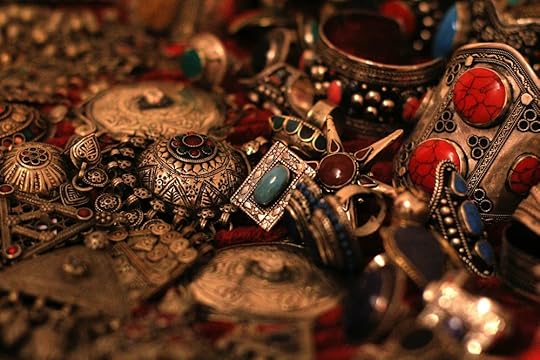
All of these are tools to unlock the vault that holds all the stuff you have not healed yet, the stuff that stands between you and that new life you so desperately seek. In the end, the biggest obstacle to your new ALIVENESS is the fear of going into the stuff that elicits the strongest feelings inside of you. And the indicators of what those things are, usually hide in plain daylight. It’s the stuff you least want to touch, look at, think about, or even consider.
In the immortal words of Joseph Campbell,
The cave you most fear to enter holds the treasure you seek.
also
Where you stumble, there is your treasure.
Got the guts?
Please feel free to check out my free online moderated community, Badass Counseling Group, on Facebook. But, if you long for a closer community that’s more committed to next-level growth, direct access to me — Sven, and more excellent resources for transformation to greater ALIVENESS, go to www.badasscounseling.com and click on CMTY-PLUS! It’s what you’ve been waiting for!
Thanks for reading.
HAVE A KICKASS DAY!
Click Here to Learn More About Counseling-- Sven Erlandson, MDiv, Is The Author Of Seven Books , Including 'Badass Jesus: The Serious Athlete And A Life Of Noble Purpose' And 'I Steal Wives: A Serial Adulterer Reveals The REAL Reasons More And More Happily Married Women Are Cheating.' He Has Been Called The Father Of The Spiritual But Not Religious Movement After His Seminal Book 'Spiritual But Not Religious' Came Out 15 Years Ago, Long Before The Phrase Became Part Of Common Parlance And Even Longer Before The Movement Hit Critical Mass. He Is Former Military, Clergy, And NCAA Head Coach For Strength And Conditioning; And Has A Global Counseling/Consulting Practice with offices In NYC, NJ, And Stamford, CT: BadassCounseling.Com
July 19, 2025
Love-Bombing and Important Dating Small Things
One of the newer words to work its way into common parlance, at least vis-à-vis dating and relationships, is “love-bombing”, wherein a person you’re dating showers you with attention, gifts, kind words, affection, and everything you thought you ever wanted, building a strong emotional bond in you. You become convinced you’ve finally – FINALLY! – found the person you’ve been looking for your whole life. You don’t just fall. You fall hard!
But then, either quickly or slowly, more often slowly, they pull it out from under you, turning into the very monster, bum, or jerk you thought you had finally gotten past in life, who uses manipulation or control to take from you to, more and more, give to them. Before long, you find yourself right back where you have always been – miserable, longing for their nice side, wondering how you got here and why life hates you so much.
As a result of this understanding of love-bombing, a whole lot of people, nowadays, have become exceedingly cautious, even skeptical when dating a person who is very kind and loving, not to mention giving. The very things that used to be seen as good are now seen as red flags because of this new love-bombing neurosis. So, there’s yet one more fear gripping people as they move through the dating experience, often to the point of near-paralysis.
But, here’s the thing.
 Love-bombing can only be seen after the fact, in retrospect.
Love-bombing can only be seen after the fact, in retrospect.
In the beginning, during the affection, praise, attention part, love-bombing technically doesn’t exist. If you really think about it, the very definition of love-bombing isn’t the affection, gifts, attention, and kind words that create the strong emotional bond. That, in and of itself, is nothing more than affection, gifts, attention, and kind words; quite benign, in and of themselves.
In order for there to be love-bombing there has to be the other part, too, the transition to manipulation and control, which yields extreme taking/giving. Without the transition, there’s no love-bombing. That means that when the praise, gifts, affection, and attention are going on, you quite simply, have no way of knowing whether or not it is love-bombing. There is no way to know in advance of the first sign of that transition. Even after someone does something other than love-bombing, that doesn’t necessarily mean it’s becoming love-bombing, as love-bombing is a pattern of taking and control that follows a pattern of giving and bonding. Without both of those patterns firmly established, or visible, it’s not love-bombing. This means that if you’re living in a heightened fear of the transition to manipulation and control, you’re robbing yourself of the very experience you’ve been most wanting, or at least one aspect of it – the wonderful beginning phases of a long and prosperous relationship.
And, of course, past pain is what’s driving this near-paralyzing, joy-sucking fear. Thus, once again, your unhealed pain from the past is robbing your present of the very joy you most seek. Oh hell, the bitter irony!
That raises the very natural, logical question: How would doing the supposedly helpful healing work change the love-bombing, or potential love-bombing experience? I mean, the love-bomber is still a love-bomber, right? You’re still screwed either way, aren’t you?
 Why Spiderman Never Got Love-bombed
Why Spiderman Never Got Love-bombedOne of my all-time favorite shows, as a kid in the 70s, was the live-action series Spiderman with Peter Parker played by an actor from my, even then, all-time favorite movie, The Sound of Music. All of this has nothing to do with anything, except that Spiderman had spidey senses, the ability to sense, feel, or strongly intuit when things were happening or even about to happen. That’s all. And, well, presumably, Spiderman would’ve never been love-bombed, because his spidey-senses would’ve picked up on that sh*t in two seconds, once it started to happen. He wouldn’t have overlooked it. He would’ve seen it and tuned in, zoned in, and stayed focused, no matter what other feelings he had.
The thing that sets apart the person who has done the truly deep, ugly, scary healing work of facing, naming, and extracting the childhood pain, fears, and BS beliefs they’ve been taught about themselves is that they have spidey sense, very strong intuition AND, AND, AND, even more importantly, they not only trust it but they act on it immediately and fearlessly, when it’s small, almost unnoticeable.
When you’ve done the deep work to heal your inner child
you become, in a way, like Spiderman.
For the first time in your life, you sense the small things you feel,
such as when things feel off or don’t quite feel good.
But also, like Spiderman, you see or sense things in advance, in a way,
because you remember that this small thing you’re experiencing now
led to medium and large bad things, in the past.
So, like Spiderman, you trust that sense and the memory, and you act on it now.
It's so terribly important that you get this. The more you do the facing, naming, and flushing of that way past stuff (the childhood stuff), the less you have to live in fear, because your spidey sense, your intuition picks up those pings on the sonar so easily, and you lose the fear of acting on them, because you’ve already faced far greater fears in slaying those dragons of your past inside you. Further, you’ve learned well from your less-distant past – i.e. the relationships and career setbacks – the price of not trusting those pings on the sonar where something feels slightly off. You know the hell that’s coming if you don’t trust yourself.

As you more and more trust your intuition, you don’t have to wait for things to turn into a full-blown sh*tshow replete with flying monkeys, before you finally take action. As you do the work more, next time you catch it when the circus is just starting and the monkeys are on the launch pad, but not actually fully flying, yet. Then, doing more of the deep and ugly work, next time you trust and act on the intuition when the signs for the arrival of the circus are just being wheatpasted across town. Then, next time, having done even more of the work, you note the first and second pings on the radar, and you speak up, no longer afraid, no longer backing down because of BS voices going on inside you.
That’s when the whole game changes, not just when it comes to dating, but life itself. The anxiety and fear get drained from both. You no longer fear love-bombing or being left, because you know if someone changes, or a pattern stops, or simply if something happens that doesn’t feel good, you’ll catch it. It’ll effortlessly show up on the sonar of spidey senses, and you’ll listen, this time and every time henceforth. You’ll listen and you’ll act when something doesn’t feel good. It’s that simple.
Because of that, love-bombing no longer exists as a possibility in your life, because the transition can never happen. Why? Because you see, sense, feel, taste, touch, smell, hear, and simply know when things don’t feel good. It’s that simple. You’ve long stopped believing that how you feel is irrelevant and that your inner voice ought not be trusted. In fact, all you do is trust your voice. And, it leads you beside still waters, always. There’s never a reason not to trust it.
That means you can get fully caught up in the joy of being given to, treated well, listened to, doted on, and falling in love while simultaneously tuned into, fully seeing, and willing to immediately act on deviations from patterns or anything, at all, that simply doesn’t feel good. Think about that. For, that is the difference between those who have and haven’t done ‘the work,’ between those who are vulnerable to love-bombing and those who aren’t. Those who’ve done the totality of the work can enjoy the totality of any experience while simultaneously being receptive to, noting, and acting on anything that doesn’t feel good. Also, the hopes and dreams that can accompany good happening, do not stop this person from stopping the presses, so to speak, to address when they’re being treated poorly or when something has been done that needs attention.
 The Importance of Small Things when All You Want to See are the Big Things
The Importance of Small Things when All You Want to See are the Big ThingsA very common refrain I hear from people, particularly women, in long term relationships that have become bad or where the woman is very sad, beaten down, or just lost is, “I used to be so much stronger, when I was younger,” or “I want to go back to who I was in my 20s. I want to get that girl back,” or “I don’t know what happened. I just lost myself.”
There is this sense that they can feel and see a higher, stronger, better version of themselves that they were actually living when younger. There’s a concomitant longing to get that back.
Now, I know that is more a result of how beaten down they are now than the fact that they had some grand understanding of who they were, back in their 20s. They think they did, but they didn’t. They’ve been so laid low by life, since then, that that self, back then, sure looks stronger and more real than the one they’re living now.
Whether from where they’re sitting or where I am sitting, the obvious part is the noticeable distance from how much better they felt and how crummy they feel now. About life, about themselves, about their relationship, about their career, about hope, about the future, about anything, about everything. The point is the profound distance between then and now. They see it; I see it.
Maybe now they complain of being married to a narcissistic, gaslighting, lazy ass. Maybe they’ve put on 60 pounds and can’t stand to look in the mirror, and they know it’s directly tied to all that has happened in their life, especially their relationship. Maybe the kids are being used to meet their spouse’s needs for attention or the spouse, or stepparent, is a jerk to the kids, and my client knows they themselves are allowing it. It could be any number of things.
 Little Things Become Big Things...Always, Always, Always
Little Things Become Big Things...Always, Always, AlwaysWhat makes dating so difficult that we don’t realize, really, when we’re dating, is that small things always become big things. Whatever we allow to happen in a fledgling relationship will very often, or basically always, continue or outright grow. This is especially true of undesirable aspects. Anything that doesn’t feel good, feels disrespectful, or hurts that is allowed, after one time, has an increased likelihood of happening a second time. Whether it is:
- A forgotten or dropped apology
- Not showing up when promised and without explanation
- Not accepting responsibility for harm caused, especially when small
- Self-absorption
- Checking-out/Silence unexplained
- Rudeness
- Distance
- Taking advantage of
- Taking for granted
- Gaslighting
- Breadcrumbing
- Grayrocking

On and on the list can go. But the fundamental thread is that it is something that doesn’t feel good to you that is small, at the start. It is something that maybe, is so small that any other person could pass it off as barely noticeable, but somewhere in you, you do notice it. It does show up as a ping on the sonar of your intuition. Pings are Red Flags. And, your inclination has always been to blow them off, precisely because they are small. And, this is the problem.
The very curse of long-term relationships are phrases we tell ourselves, or allow others to tell us, such as:
- Ah, it’s no big deal.
- We have such good chemistry, though.
- I’m sure it’ll go away.
- We’ve come so far, at this point.
- I can change him.
- I’m sure she doesn’t mean it.
- Yeah, but she’s so hot.
- But, he’s so successful (or makes me laugh).
- It’s a one-off.
- In the big scheme of things does it really matter?
- I’ll deal with it later, if it happens again.
- It’s not like I’m perfect. So, who am I to say anything about that?
- We just got married; I can’t bring this up now. I gotta stuff this down.
- I can handle it. Mom was that way, too.
- He didn’t mean it.
On and on the list of rationalizations goes, excusing the bad behavior, always deeply rooted in hope, not fact or reality. Because the sad truth is that dating is like bringing home a puppy; they’re damn cute, but if you do not carry them outside every single time they start to urinate indoors, you are teaching them it’s okay to go to the bathroom indoors, because you’re sending mixed messages, or even no message at all that this behavior is unacceptable. If you don’t nip the problem in the proverbial bud, this thing that is small will become big, creating far, far greater problems.
It is extremely important that you understand that partners/spouses/lovers do not start out with a punch in the face. The abuse or bad behavior does not ever begin as screaming or insane putdowns. It never starts there. It always, always starts small, as a testing of the waters. And, little things become big things. They always do. Pings on the sonar, left unchecked and uncorrected, become the opening volley of the smallest variety, almost undetectable…almost. But, if allowed once, then it gives the person permission to do it a second time. And, if you allow it once, it becomes more difficult to call it out the second time it happens, because the other party can think or say, “Wait, you didn’t say anything about this last time.” Thus, if allowed that second time, you’ve now got a pattern that, in a few years, will have become so much bigger and common that you’ll hate it and wonder where this person came from, even though the origins are easily chartable. It will become seemingly impossible to address.
This is also why, when I trace the genealogy, so to speak, of a relationship’s problems with a client, often it will track back many years for them, for example, “Everything started right after the wedding,” as in that’s when the abuse started, or the change in sex patterns, or that’s when the temper began, or what have you. But if we really, really dig down, we see that the smaller indicators (pings) were there long before the “I do’s.” Realizations like this are when it becomes very troubling for the client. Or, that might be something they don’t want to admit, because that means they allowed something, implying some measure of complicity in the equation.
What then happens, over time, as these small bad behaviors become patterns and grow, the person allowing them recedes into greater silence of the soul, greater loss of self, greater weakness, greater unhappiness, and greater unrest and nothingness inside.
Now you can understand the complaints of the person earlier saying, “I used to be so much stronger” and “I want to find my old self.” Whatever version of themselves they were back then, even if it was the self they were conditioned to be, since childhood, it likely still felt a whole helluva lot better than what they’re feeling right now, because they’ve abdicated so much power and, worse, so much of who they are. And, it’s killing ‘em.
Thus, it’s so important in the dating process that little things be nipped by addressing them, stating that they hurt or will not be allowed. Apologies must be required. You’re training a puppy. You’re teaching someone how to treat you. If you allow bad treatment, you are flat out stating to this person without saying the actual words, “It’s okay to treat me like crap. I’m not worth standing up for.” People will then live down to the level you demand them to. That sounds harsh or tough, but it’s simply fact. If you don’t stand up for you, ain’t nobody else going to. What you allow will metastasize. The cancer will grow. You have to understand that.
Learn from the salty old dogs in the comment threads on my social vids. Nearly all realize that it started when young. Or, if they had a relationship start in their 40’s or 50’s, the problems still always start small. If you haven’t done the work to heal, it can bite you just as hard in the ass in your 50’s as it could in your 20’s.
 So, what is ‘the work’?
So, what is ‘the work’?If pings on the sonar are your intuition speaking and you either aren’t feeling them or are ignoring them, that means you’ve got other voices inside you, blocking you. The work that is mandatory, then, is going inside to flush out all of the pain, fears, and BS beliefs you’ve been taught about yourself, which is precisely the work of my bestseller, “There’s a Hole in My Love Cup,” and my most recent daily inspirational book, “BADASS WISDOM”. It’s to remove all of the voices and messages embedded in you that stop you from being the authentic you, moment to moment, especially in those times of relationship formulation when your sonar is talking, and things are going great.
It's time to do the work.
So, what are the aspects of your self-healing that you’ve not addressed yet? Or, perhaps, do you keep putting off the whole process? Do you see the price it costs you in doing so? When do you tire of living a life that is not fully healed?
Please feel free to check out my free online moderated community, Badass Counseling Group, on Facebook. But, if you long for a closer community that’s more committed to next-level growth, direct access to me — Sven, and more excellent resources for transformation to greater ALIVENESS, go to www.badasscounseling.com and click on CMTY-PLUS! It’s what you’ve been waiting for!
Thanks for reading.
HAVE A KICKASS DAY!
Click Here to Learn More About Counseling-- Sven Erlandson, MDiv, Is The Author Of Seven Books , Including 'Badass Jesus: The Serious Athlete And A Life Of Noble Purpose' And 'I Steal Wives: A Serial Adulterer Reveals The REAL Reasons More And More Happily Married Women Are Cheating.' He Has Been Called The Father Of The Spiritual But Not Religious Movement After His Seminal Book 'Spiritual But Not Religious' Came Out 15 Years Ago, Long Before The Phrase Became Part Of Common Parlance And Even Longer Before The Movement Hit Critical Mass. He Is Former Military, Clergy, And NCAA Head Coach For Strength And Conditioning; And Has A Global Counseling/Consulting Practice with offices In NYC, NJ, And Stamford, CT: BadassCounseling.Com
June 20, 2025
CUTTING OFF FAMILY: The High (& Scary) Price of Healing…sometimes
One of the grand fears that people have as they get a bit further into the deeper work of recognizing the BS core beliefs they were imprinted with, at a very young age, and realizing where those came from is having to cut people out of their lives, or at least radically reduce the presence of those people in their lives. It’s something you’ve never imagined or never considered an actual possibility. Or, if you have, it’s something that becomes more startling as that possibility becomes something you find yourself considering with increasing frequency and seriousness.
The thing is, it’s not just the loss of this particular person that wrenches the soul and induces a growingly gnawing fear. It’s the greater fear of:
What the hell is my life going to look like,
if I start throwing people out, or even just cutting back people
who’ve always been there?
I mean, it’ll create this giant vacuum.
What if I end up all alone?
You wanna put the fear of God in someone, so to speak? Throw that increasingly distinct possibility at them. You wanna upset the apple cart of someone’s life, not to mention their sense of stability in life, allow them to think that might be a reality they’re going to have to look at.
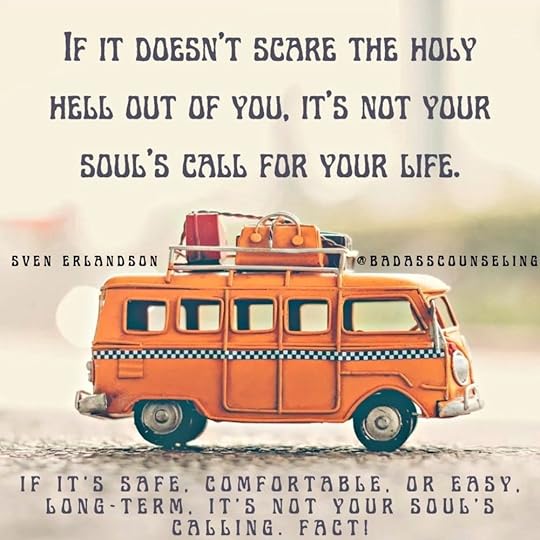
Yet, what’s interesting is that I tell all clients that I will never ask, push, or coax them to scoot someone out of their lives, or even create space with that person. So, if they’re choosing to cut someone out, it’s their own choice, not because of my influence.
Well wait, that means if you’re afraid of that reality happening, you’re afraid of something happening that you, yourself, are choosing to make happen. Well, come on, then it’s not some terrible fate befalling you that you have no control over. No, then it’s like you’re terrified to get on the giant rollercoaster, but you get on it anyway.
Ain’t no one putting a gun to your head to get on the rollercoaster. You’re choosing it. So, quit yer bellyachin’. I mean, I can understand you’re scared, in advance. But you’re only being scared of something THAT YOU ARE CHOOSING! YOU DON’T HAVE TO CHOOSE IT!
Aye, but there’s the rub, isn’t it? Somewhere in you, you know you may just have to choose it…for your own sake. Often the client reaches the point where they know they have to cut this person back or cut them out for themselves. Or, maybe they have to cut back several people. And, it’s just sad because it’s scary, and scary because it’s sad.
 The “Target” Exercise
The “Target” ExerciseSo, to both assuage that pain and to give them control over their lives — a bit of method to the madness of this fear — I explain how I finally began to order my own life. I think of people in my life as all being on a target with concentric circles.
- On the field outside of the outermost circle are just people I bump into but don’t know.
- In the outermost ring are people I wave at whom I see, say, at the coffee shop each day, whom I don’t know, but recognize.
- Next ring in are, perhaps, Stephanie, the nice young gal at my liquor store, whom I chat with who prefers cloudy days and staying in with a book; or my neighbor way up the street, Lucy, who is opening the ice cream shop and whose kids love to play hoops in the cul de sac.
- Next in are Marc and Danny at the gym, one’s a heavy lifter young guy who just had a kid, whom I talk with more than others because he’s such an affable guy who also works hard; the other is an older dude that I talk old-school gym talk with and is totally blue-collar and the nicest guy; both whom I’ve seen out and about with their wives, or at the steak joint with clients.
- Next in are my actual friends, but not close friends. So, maybe old friends I’m not in touch with, or only loosely, as well as occasional friends around town, scattered around the country/world, and extended family.
- Then, close friends, like Rob and Chris, and siblings, and nieces/nephews. These are people whom I just spend more time with, check in on more, worry/wonder about, and give more energy to.
- Then, oddly, oldest friends, whom I oddly spend the least time with, sometimes talk with least, but have the warmest spots in my heart – Huge, Emerson, Lisa, Jay, Todd.
- Finally, the bullseye is reserved for my kids and their spouses, as well as my girlfriend. These are the people closest to me, who have unfettered access to me and choose to give the most, yet also from whom I expect the best treatment. That is, I expect to be treated the way I treat them. These are the people I cannot out-give..
- Yet, there’s one more spot on the target, as anyone who throws darts knows. It’s the double-bullseye in the dead center, the very smallest spot on the entire target, always with the highest prize attached to it. There, in the dead center is me and only me, the most sacred spot on the target. No one is allowed to transgress that boundary.
That’s all very well and good, but it doesn’t really mean anything to anyone, besides me, unless there’s a legend to the map – an explanation of the ordering, of what the criteria are that determine what or who goes on one ring versus another. This is where the exercise becomes instructive more in the growth process than if you were just cutting someone out of your life or pushing them to an outer ring..
 expectations and boundaries
expectations and boundariesSo, it began for me, really, at the end of my first major adult relationship, when I realized, in my 20s, very distinctly that I knew in my next relationship that I wanted one thing for sure. I wanted a woman who could apologize and mean it and forgive and mean it. I mean, I’m in my 20s and thinking about that?? It felt like such an odd thing to think at that age, but it was real and strong. Thus, the very first ring got drawn around the bullseye. The double-bullseye of just me in the dead center didn’t exist yet in my life, but I knew that to be in the center with me as my mate you had to be willing to own your crud and forgive me for my crud and mistakes. (Interestingly, in my next big relationship, I met a woman who could and occasionally did. But, I still lacked the courage to hold her accountable to actually do so.)
Over time, I began to layer in a few more criteria onto my target, even if I wasn’t aware that’s what I was doing. To this day, it’s not a particularly complex sequence of expectations and boundaries. In fact, my target criteria are really pretty simple. I move people further in the target, or allow them to do so, if they basically live by life principles that are similar to mine:
Are they truly a gentleman, or gentlewoman?
Is their default kindness?
Are they deferential?
Do they do honorable work, whether vocationally or avocationally?
Do they truly own their sh*t, or do they weasel out of stuff, even cleverly?
Do I respect them?
Do I trust them?
What does their energy say?
And the real whopper: Do they give more energy than they take?
But, as I became more in tune to myself, my own needs and the things that just don’t feel good to me, I had to be willing to bump people out a ring or two, or six, if necessary. In the past, I had no boundaries, really. Someone could come all the way in to the innermost parts and do a home makeover, rendering whatever manner of criticisms and damage they saw fit. For some reason, I thought I had to take it. I was raised in a home that modeled giving constantly. I was raised in a flavor of Christianity that put a premium on both giving and on reflecting on my own share of fault in any situation, or how I might be contributing to a problem. In other words, I was not set up to create or maintain boundaries, much less even know what the hell boundaries even were.
Then, with aging, pain, reflection, reading, lots of journaling, and self-permission, I simply thought, Why? Why am I obligated to allow anyone to do damage? Or, much more basically, why am I obligated to allow anyone anywhere near even the surface levels of inside my life if they don’t add value.
Don’t get me wrong, I am just like any other person insofar as I love giving to others. I love serving. I love giving love and seeing/making others happy. But, doing that at the expense of self constantly no longer became the rule. I instead implemented rules for my life, becoming much more judicious in who I gave to and, simply, who I allowed closer to me.
And, here’s the subtle thing about even that giving of permission and ordering of life. The mere act of saying I’m allowed to do that, the mere act of setting rules for who gets to come closer and closer, the mere act of even having that conversation with myself is an act of self-worth. It’s all a statement of mattering. I matter enough to have gates to different levels of self. I matter enough to say, ‘No!’ And, as I talked about in Love Cup, finally mattering to yourself is big stuff, very big stuff. It’s stuff that finally begins the healing of the hole in the bottom of the love cup.
 The Exercise
The ExerciseGet yourself a piece of paper and draw a target, maybe six concentric circles, to start. Do so with the understanding that the first iteration of this exercise may be a rough sketch, because you may want to add more, or fewer circles later; or, perhaps, make more room for writing, lists, or what have you. Thus, it might be best to not have this first shot at it be in your actual journal, so that you’re not burning up pages in your journal. On the other hand, who cares? Play with it. Make the exercise fun and adapted to you.
Start with the innermost circle, as that’s usually easiest. Now, you can start by listing the actual people who are in that circle, or maybe it’s just you, or not. Or, maybe you want to list the criteria for the circle, rather than the actual people, first. Then move outward to each successive circle, defining it as it feels right to you; or simply putting in the people who feel right for that circle, defining each circle later. Work your way outward and all the way to the edges.
Now remember, as the writer David Miller wrote, “Taking fun simply as fun and earnestness in earnest shows how thoroughly, thou, none of the two discernest.” In other words, even the most serious work has an element of play and fun to it, even as play has seriousness to it; and if you don’t get that, well, you just don’t get it. So, in this exercise, make it fun. Yes, this is self-work, but it needs to have an element of play to it. Tailor it to you. Do you have particular pets, perhaps, who are as dear to you as people, or perhaps more so? Where do they go on your target? Maybe you commune with those who have gone before you, a deceased spouse or sibling, whom you’re very close to, even still, or perhaps they still talk to you? Great, add them in here wherever they belong.
Check Your Blind SpotsNo matter who you put on your target, check your blindspots. That is, ask yourself questions like, Am I adding this person here because this actually feeeeels right and accurate or because I feel obligated to do so, like if this person saw this (which they never will, I’ll remind you!) they’d get mad if I didn’t? If you’re not being blatantly honest and clear in this exercise, then you’re still not fully giving yourself permission to be you, even in the privacy of your own self-work of your own journal.
Think about that! Are you still so terrified of the truth and/or others that you refuse to be honest, even in your journals and work on your own self? Are you being fully honest with yourself? I mean, if you’re in your self-work and you’re not being honest with. yourself, then what’s the point of doing the work, at all.
In light of the honesty discussion, there’s one more wrinkle to the Target Exercise. You can attack this exercise from the perspective of how your life sits presently as your still unhealed and not fully grown and authentic self. Or, if you like, you can approach it from the vantage point of how you want your life to be ordered, not how it is now. Or, if you’re feeling clever and a bit ambitious, make three targets: one that shows how the people in your life were arranged ten (or five or 20) years ago, one that shows how it is now, and one that shows how you’d like it to be.
After arranging your target, if you started with listing the people in each circle, label each circle with a number. Then, down below, write the number. Next to that number, write out the criteria for being in that circle. Feel free to start on the innermost circle, the outermost, or wherever you would like to start.
Or, if you began the Target Exercise by writing the criteria for each circle, then after now numbering them, go down below and start listing the people who belong in each ring.
As you fill in the criteria and people for each ring, feel free to expand your journaling to include further explanations of why you included this person or pet in this ring, but not that person or pet. Journal about why you’ve included this criterion but not that one in this ring. What is it about that particular issue that is important to you? When did it become important to you? Why then? What life event taught you that? The more detailed you are, the more specific you become in understanding your own self. You’re detailing your understanding of self, which may/will change as you change and grow.
Do you see the value of greater defining and questioning, detailing and changing of self and descriptions?
What often happens in the working through of this exercise is that folks realize that some people in their lives aren’t actually as important as they’ve been making them; or, they don’t want them to be as influential as they’ve been allowing them to be. This may happen to you. Don’t be alarmed. Just let these thoughts come. Write them down. Make the changes that feel right to you, knowing damn well that you do NOT have to act on one bit of any of this. It’s just an exercise. No animals or humans were harmed in the making of this exercise. This is simply a learning lesson, for you to know more about you. If you choose to act on it someday, great. If not, great. Who cares? It’s your life. For today, we’re just tinkering, trying to more clearly see what the truth of who you are actually is. That’s it. Action not required.
So, yes, I know you are scared at the thought of possibly having to cut out family/friends, or you have done so and it hurts, even though you know you had to do it. All yourself to feel those feelings and write about them, especially the fear and the sadness. But, as you do so, also allow yourself to both see and write how YOU see your own life being ordered and set into motion by YOU.
You got this!
Please feel free to check out my free online moderated community, Badass Counseling Group, on Facebook. But, if you long for a closer community that’s more committed to next-level growth, direct access to me — Sven, and more excellent resources for transformation to greater ALIVENESS, go to www.badasscounseling.com and click on CMTY-PLUS! It’s what you’ve been waiting for!
Thanks for reading.
HAVE A KICKASS DAY!
-- Sven Erlandson, MDiv, Is
The Author Of Seven Books
, Including 'Badass Jesus: The Serious Athlete And A Life Of Noble Purpose' And 'I Steal Wives: A Serial Adulterer Reveals The REAL Reasons More And More Happily Married Women Are Cheating.' He Has Been Called The Father Of The Spiritual But Not Religious Movement After His Seminal Book 'Spiritual But Not Religious' Came Out 15 Years Ago, Long Before The Phrase Became Part Of Common Parlance And Even Longer Before The Movement Hit Critical Mass. He Is Former Military, Clergy, And NCAA Head Coach For Strength And Conditioning; And Has A Global Counseling/Consulting Practice with offices In NYC, NJ, And Stamford, CT: BadassCounseling.Com
February 11, 2025
Porn
It would’ve been roughly age 11 when I stopped secretly unscrewing the hinges on the backs of my brothers’ homemade safes to look at the dirty magazines they had (and steal a few coins to buy candy before replacing the hinges and screws perfectly). I only did so because my buddies on the block and I had discovered a method for creating our own stashes, well two methods, actually. We’d steal them from the corner gas station, which was a bit tricky because they were kept behind the counter. This meant becoming so familiar to the older teenage kids who worked there that they’d trust us to watch the store while they occasionally went outside to use the bathroom, at which point I could lean over the counter, reach under it, and lift a Playboy or Hustler, which I’d tuck into my jacket.

However, the far easier, if less rush-inducing, way was to pedal our two-speed Schwinns half a block to the apartment complex in which I had part of my paper route and hop into their 6’x6’x6’ dumpsters, riffling through bags of trash to find discarded Penthouse, Oui, and other such magazines. Granted, it took a lot of dumpster-diving to find even one magazine, but the score of even one kept us foraging. For, we were newly minted, high-charged testosterone packs. And so, it wasn’t long before I had my own rather sizable stash of dirty magazines in my safe.
I then became a bit more deliberate in the archiving of my porn. I found all the words and advertisements to be distracting. So, I would simply tear out the pictures of the women. But, over time, my stash had grown so large that I had certain pictures that were more titillating than others. So, I did not tear out all of the pictures, only those I really liked.
But then, over the next 10-15 years, as I aged into the ability to simply buy not only my own magazines but also later my own VHS tapes (not that I had my own VHS player), an odd thing happened. Despite my assiduous cataloging of and delight in dirty magazines, for years, and absent any waning of testosterone – in fact, if anything, it probably increased, as I entered my early- to mid-twenties – my use of pornography trailed off, apart from the occasional bumping into the Victoria’s Secret catalog in someone’s bathroom.
Even when personal computing came along with the beginnings of online porn in the 90s, I didn’t have a personal computer. So, I only randomly encountered it in a grad school library computer room, prompting a mad dash to the restroom.
Subsequently, as personal computing and online porn became more ubiquitous than God him- or herself, to the point where it’s easier to not believe in God than it is to not believe in porn, and to the point where all manner of devices are necessary to keep porn off of children’s devices, it never held some grand allure for me.
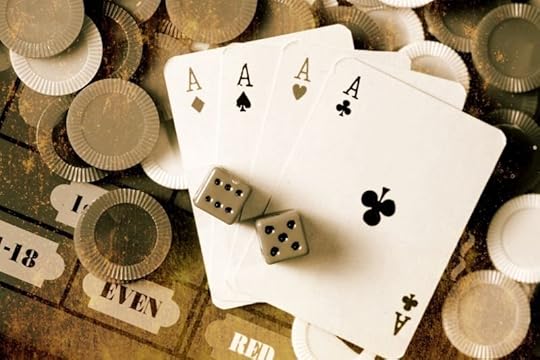 Compare porn to gambling, for a moment.
Compare porn to gambling, for a moment. When I was young, every time I would take bets with friends or even play cards with siblings or friends, I would almost invariably lose. And I’m soooo glad I did. Because, I know that if I had won more, there would’ve been a high probability that I would’ve gotten hooked on the rush of gambling.
In contrast, because I did find the occasional magazine in those dumpsters, I did, at a young age, get hooked on the rush of flipping through torn pages of dirty magazines with one hand. But, unlike gambling, the porn habit didn’t stick as some great fixation for me, nor is it some great aversion, now at 57. My girlfriend of 11 years and I have an agreement and each infrequently uses it, but it’s no big deal for either of us.
So, what’s my point?
It should’ve stuck. Given the addictive nature of porn and given the highly charged sheer chemistry of testosterone – and a teenage boy has enough testosterone to kill a horse! – I should be an absolute, lifelong porn addict. But, I’m not, even though my testosterone levels, per my yearly blood tests, are well within the normal range.
Furthermore, I absolutely love women as much as my gay brethren love men. I’m a visual animal who gets very turned on sexually by attractive women.
And yet, the porn thing never stuck.
Go figure.
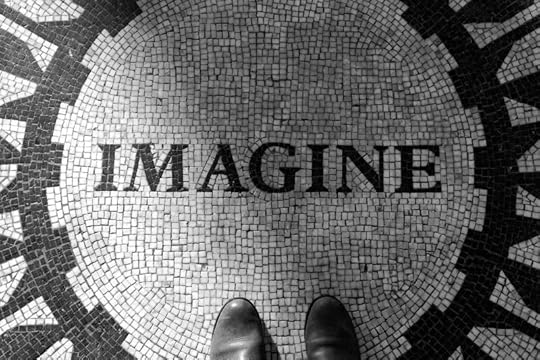 porn vs. IMAGINATION
porn vs. IMAGINATIONSo, the obvious question is, why? If all the seemingly necessary elements were in place for me to have a seriously long addiction to porn, why did that porn love fade away or just become incidental in my life? It’s as if either something was still missing that kept it from becoming an addiction, or something took porn’s place, or both.
Hmmm.
A funny thing happens when you’re in junior high in the 1970s, or I suppose in any decade. For as sexy as those ladies look in the Playboy tear-outs in your closet safe, you spend far more time staring at the Marilyns, Michelles, Romys, and Jennis at school than at them. You grow far more fixated on Diane’s butt or Nancy’s chest, than any woman in ink, or at least I did. Add on top of that, I had four older brothers who had an ongoing parade of girlfriends, over those years, whom I’d see in pretty clothes or the occasional bikini.
And so, I did what children and teens do. I used my imagination. And that – that! – became the drug that porn wasn’t, and far, far more powerful, at least for me. The ability to close my eyes and imagine any scenario with any person, known or not known, became far more arousing than any page or movie.
Yet, for as pleasurable as solo sexual experience within my imagination has been, over the decades, and still is, and while it has been a lovely substitute for porn, it has never climbed to any level of being some significant player in my life, any more than over-exercising ever has (and trust me it hasn’t, despite my vanity). So, while I lost my need for porn, I never grew a need for frequent solo sexual experiences using my imagination.
So, we’re back to the earlier question, if seemingly all of the elements for a porn addiction were in place, back in my teens and early twenties, either something was missing or something took porn’s place, or both. Well, imagination largely took its place, but even that didn’t rise to the level of addiction. So, perhaps something was missing that caused me to never get fully enmeshed into porn. But, what might that have been?
 What Cheating and Porn Have in Common
What Cheating and Porn Have in CommonYears ago, when writing what would become a heavily researched, two-volume book on female infidelity, after decades of counseling marital cheating victims and perpetrators, as well as those the third parties who were engaging in the affairs with the cheaters, I came to see a very distinct, unmistakable pattern in cheaters. Because of the nature of the Badass Counseling Method, I go very deep into behaviors and motivations, down into the core belief systems driving human action. Down there, the pattern I saw, again and again, is that the cheaters all had experienced massive denunciation of worth in children, over the years, in the form of three general areas:
You’re not wanted,
Not good enough/loved, and
Who you (really) are doesn’t matter.
That one factor repeatedly showed up in the core belief system of the cheater.
Further, because of the origin of that belief, it had existed long before the cheater ever entered that marriage or relationship. It was just buried so deeply into the soul of the individual that it was hidden, as well as woven into the very fabric of their personality and operating system, beyond detection. Whereas, the marriage itself, rife with problems, of course, became the easy target and the spouse the bullseye – the cheater completely unable to see that the problems were created by something that long predated the relationship. It was a setup. In some ways, the marriages didn’t stand a chance to begin with. It’s a bit of a miracle the relationships lasted as long as they did, given they were based on two people living out a version of themselves that were never their most authentic selves.
Instead, as that child, decades prior, got those messages of not mattering or not being ever good enough or unwanted, he or she became whomever they had to become to get the love they sought to become. They became conditioned to be a different person, their conditioned self. So, you’ve got two conditioned selves trying to make a relationship, yet deep down two authentic selves are longing to be seen and come out to the sunlight.
 Unhealthy People Come in Twos
Unhealthy People Come in TwosBut wait, you say, TWO selves? There’s only one cheater; only one person is at fault for the cheating. Why do you say two conditioned selves, two people unwittingly living these false lives since childhood?
Yes, now, I’m not saying the person who was cheated on is in any way responsible for the cheating occurring, at all. Let that be clear.
What I am saying is that anytime you have one conditioned, inauthentic person in a relationship, you have two. Plenty of people would love to point the finger at their spouse and say,
“They’re the inauthentic one. I’ve been doing self-work. I’ve been in therapy. I’ve found myself. They’re the problem.”
Here’s the problem with that little thought.
As I spend a chapter discussing in my book, There’s a Hole in My Love Cup, unhealthy people come in twos. I am an absolute believer that a healthy person will not get into, nor long stay in, a relationship with an unhealthy person. Why? They can’t. It is such a massive intrusion on their soul, such a colossal drain that it behooves their soul in no possible way. And, a healthy person only serves their soul, trusting all else to the spirit of the universe, itself. A truly healed, healthy person may wait, may try, for a while, but it won’t be long before they can try no longer, and for the health of their own soul they know they need to press on, even when children are present. They know they can do it better on their own.
Granted, a very healthy person may give of their life in service of unhealthy and hurting people in their work, but that is a different matter because the service or work serves their own soul. But, an intimate, everyday relationship is a completely different matter.
So, back to the point, the cheater has a deep longing in the soul that is no longer being met by the marriage and life, work, kids, and whatever other pursuits there may be, in addition to any addictions that may be a part of that life. And so, that individual reaches into the basket of options and chooses one – CHOOSES! – that she or he does not have to choose. They choose to cheat as an attempt to make themselves feel loved, wanted, or like they matter because that deep longing in the soul cries to them. The hole in the love cup caused by that core belief causes an ache that must be filled.
The cheating is a response to a deep need they cannot even see, only feel. It’s a wayward attempt to fill the hole. They could’ve chosen a million other things – therapy, separation, self-help, hell divorce. But, they chose one of the worst possible options. All they had to do was break off the relationship first, at the very least, and so less damage would’ve been done. But they chose the coward’s way out. And all because of a hole in their love cup caused decades prior.
 So, what the hell does this have to do with porn addiction?
So, what the hell does this have to do with porn addiction?Well, it’s the exact same thing.
The exact same hole in the love cup that drives cheating drives porn addiction.
There is that deep longing to be wanted, to be good enough, big enough, loved, to be valued, to be seen, to be heard, to matter. It is precisely the same root cause. For that matter, it’s the same root cause of alcohol addiction, pills, gaming addiction, overworking, over-parenting, chaos addiction, gambling addiction, the incessant need for distraction, unhealthy relationships with food, cleaning addiction, and on and on. Dig deep enough and it’s all the exact same stuff at the root.
Driving the need for more and more porn is the need to feel something at a soul level, something not known in real life, or certainly not long enough to be believed. Perhaps it is the feeling of love, the feeling of relief or power, of validation, or feeling seen or wanted. There are so many feelings that can accompany a real or imagined sexual experience. The feeling being sought is often the very inverse of what was taught to the individual about themselves in childhood. A few examples:
Someone seeking to feel wanted in porn likely grew up feeling unwanted.
A porn experience where the viewer romanticizes having larger body parts could have been mocked for not being ‘big enough’ at a younger age and is seeking to feel big.
A person seeking to be vicariously humiliated or have a masochistic sexual porn experience was likely taught to feel bad for who they are and thus lives with guilt. They like to feel relief from the guilt.
Engaging in porn fantasies with multiple partners, even at once, could indicate someone taught them they didn’t matter as a child or were neglected. Thus, they seek to matter and feel venerated.
(It’s worth noting that every single human action, choice, principle, value, behavior, purchase, and pursuit is ultimately driven by the desire to feel something. Hack the choice to determine what the eventual feeling is that you’re trying to extract from the experience, and you will begin to really understand yourself at a much deeper level.)
The need for more and more porn is the need for more and more quote-unquote love poured into the love cup, because it keeps draining out the frickin’ bottom, because whoever raised you poked a hole in the bottom by not fully confirming your worth, instead somehow conveying
you’re not wanted, and hence unwantable
you’re unloved, and hence unlovable
you matter only insofar as you can serve the parent, and hence the real you doesn’t matter.
Until the individual drills down and actually solves the soul problem of these core messages there are going to be a trail of problems in his or her life, whether in the form of relationships, career problems, financial issues, addictions, eventual medical issues, or internal strife. It WILL manifest, in one form or another.
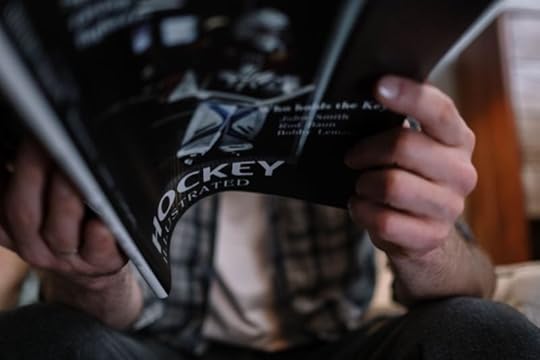 BUT, BUT, BUT What about porn?…
BUT, BUT, BUT What about porn?…
But this isn’t an article about porn addiction. It’s an article about porn. And, those are technically two different things.
More specifically, this is an article about porn and relationships – relationships with others and relationships with our own selves.
We’ve already begun the discussion of how porn, as well as cheating, gambling, overworking, booze, food, and just about anything else, can become an unwitting substitute for a relationship with your own authentic self, over time. Stolen from you or me at a young age, we seek out experiences that either take our pain away from feeling invalid or make us feel something that is a saccharine substitute for authentic worth.
To reduce the need, or even want for any significant or moderate amount of porn would require going within to flush out the pain, fears, and BS beliefs you’ve been taught about yourself that are driving the longing, in the first place.
Naturally, the same is true of your relationship with anyone else, particularly any intimate relationship. The degree to which porn, or anything else (from work to over-parenting), becomes a blockage to the relationship is a direct result of the amount of work done by two individuals on their own deepest inner selves and the identifying and extracting of those deepest messages. Till that happens, either by hook or by crook, the relationship skates on thin ice.
 Social Contracts, Spoken and Unspoken
Social Contracts, Spoken and Unspoken
My girlfriend and I have been dating for 11 years. When we met, she was 50 and I was 46, living on opposite sides of the US. We each had been in long-term relationships, each had had our hearts blown out in the past, and each had walked away from relationships that had gone past their ‘sell-by’ date. We were both at the ‘No BS’ phase of life and each had our own quirks.
But, we also were each realistic in our allowances. I didn’t have all the silly jealousies and worries I had in my 20s. She wasn’t as intense as she had been as a businesswoman among old-school garmentos in Manhattan in her 30s.
We both knew the other used porn occasionally. Neither cared. At one point or another, each offered that if the other wanted to incorporate it into our sex life, that would be fine too. Since then, porn has come and gone, and come and gone. We don’t really talk about it much, because neither of us really cares.
Why?
Well, one, we have an agreement, a sort of social contract, that we’re good with it being in our relationship, to whatever degree one or the other wants to use it.
But, two, and this is the more salient point, it has never gotten in the way of our relationship.
More specifically, neither one of us has ever felt unloved by the other and gone looking for things to blame for the feelings of not getting the love one of us needs. Despite the demands of the companies we each own and run, the varying needs and wants of our adult children, and the undulating interests we each have, from politics to sports, and cross-country road trips to fitness, we always prioritize each other, not because we feel the need to prioritize each other, but because we just really enjoy each other.
So, the back-and-forth flow of love is just never really in question. The mutual fondness for each other’s spirit and body is real and felt. So, who gives a sh*t if the other wants to go solo, now and then?
But that’s kinda the point. A) There’s an agreed-on, in advance, contract that both parties keep.So many problems come up with porn in relationships when one person breaks the original agreement regarding porn. And yes, most couples do, at one point or another, discuss porn because it is a sensitive topic for so many people.
So, if one person breaches that contract, it is a very powerful negative experience for the other. It’s experienced as not just a lie, but a betrayal, because the feelings surrounding porn are so very highly charged for nearly everyone, which I’ll get to in a moment.
B) If the love needs of each partner are being met, or at least clearly and significantly endeavored to be met, fears and worries diminish.There is a sort of calm that comes over a relationship, despite the normal vicissitudes of daily life. However, if those needs are not being met and if efforts are not being taken to get those needs met in healthy ways within the context of the relationship, then one partner may unfairly use porn as an escape or a side hustle, of sorts, to get their wants/needs met. This can be a very difficult situation, particularly if one’s partner is unrelenting in wanting to help to meet one’s needs. The rejection of my needs can lead to my escape, which of course I hide from you because it’s a breach of contract. This leads to further deception, which only leads to further sense of betrayal and hurt feelings when discovered. And the chasm that has already begun in the relationship only gets bigger.
There’s no excuse for breaking the contract of a relationship. But, that doesn’t change the fact that those same contracts can become profoundly constricting if someone is feeling unloved. For, isn’t the original social contract based on the agreement that I will meet your love needs and you will meet mine? So, it could be well argued that someone engaging in porn to get some small amount of love needs met when they aren’t feeling loved in a relationship is almost justified if their partner has not been meeting their love needs and has not been trying to any significant degree. Is not the original breach the failure to try?
And now here we see one of the many slippery slopes of relationships, only made worse if those in the relationship have not healed their deepest core beliefs and their holes in love cups, which only exacerbate unmet love needs as well as the pains of breached contracts. All of this leads to mountains of painful feelings building up over time and a whole lot of shit being slung at each other.
 Those Damn Feelings
Those Damn Feelings
So, what’s at the root of all?
Feelings. It’s always feelings…and the core beliefs those feelings set off, or trigger. Always. Those feelings and core beliefs can sweep us up into a never-ending tornado of f*ckery that controls us from within or controls our partner, devastating everything in its wake.
So, let’s back up….
Relationships fundamentally are, or largely can be a drug. They can have profound power to either make us high or numb us from pain or at the very least distract us from sh*t we’d really rather not look at or ever feel. They can have a calming effect, an orienting effect as if giving a sense of direction or purpose in life. They can be euphoric. They can be deeply fulfilling.
Considered within the context of the conditioned self that child was made to be, to walk into a relationship in one’s 20s, let’s say, and fall in love, this new relationship provides not only the high of a new relationship and all the hopes, euphoria and dreams that go with it, but it provides a tangible human being dousing you in a living, breathing counter-message to the messages you got in childhood of you’re not wanted, not good enough, not loved, and don’t really matter. It seems to wash all of those messages away, thus basically doubling the normal feelings of love. It’s someone flat-out telling you your parents were wrong: you ARE wanted, ARE good enough, ARE loved, and DO matter!
For the first time in your life you feel seen, heard, understood, appreciated, known, safe, all those things.
For the first time in your life, those voices that have been pounding in your head go away.
And you glom onto the person like you’ve never bonded to any person ever. This ain’t mere trauma bonding. This is f*ckery bonding at the deepest levels, the most insidious of sh*t. And, it doesn’t imply any amount of ill intent on the part of your partner. They’re just as wounded as you are. Later, it may seem like they had bad intent, but that is often not the case when young. But it’s going to feel that way.
So, the voices go away. What seems to slowly creep in and take root is this belief that I maybe do have worth and matter. And the slow opening to this person and to life maybe begins. It’s a fricking cool thing for as long as it lasts. Maybe it lasts six years. Maybe it lasts six weeks. Maybe it lasts ‘til the first child is born, or until the day after the wedding.
But, the day comes when life sets in. And, it’s not even that the other person turns, so much as the fact that life begins to settle into a normal and the natural bumping of elbows and bruising of ribs (metaphorically speaking) happens that occurs in any and every human relationship, every one. But, because of that opening and trusting and believing that you actually do love me and believe in me and think I have worth because those things are so fragile, so tentative, and still so new, even six years later, the bumping and bruising begin to drive me back into my shell. Wounded, I begin to cower in fear, again, a little more each day, as the normal jostling of each day and each night of life passes through our relationship.
And it’s the recoil. Always the recoil. The recoil into ourselves causes the damage. Why? Because it is there, right there, where the crack happens, and the slow seep of the old messages begins. “Maybe she doesn’t love me. See, I knew it. I’m not worth it. I was never any good. I’m still not. Life sucks. I suck.” And the recoil, withdrawal, depression, and maybe bitterness and lethargy intensify.
You know it happens, don’t you?
 Then what? What happens next in the relationship?
Then what? What happens next in the relationship?Once I start the recoil into myself, the self-doubt and self-loathing re-emerge from their slumber. And, the giant ogre that they are has a giant need to be fed. They soon begin to devour any and all love I had been giving to others, perhaps even my own children.
Everyone’s love cup around me begins to ever so slowly dry up because the ogre inside me is awakened and hungry for any and all life energy, gobbling up anything good, sitting its fat ass right on my head, rendering me barely able to breathe. With no love to give and no love going into the cups of those around me, they grow impatient and unhappy, wondering what feels like more love but is perhaps nothing more than previous base levels. But, it’s far more than I can give. So, they recoil in frustration, sadness, and anger, and give less love to me. This further reduces my love intake and increases my recoil and the size of the ogre of my childhood conditioning. The throbbing in my head returns: I’m not wanted, not wantable, not good enough, not loved, not lovable, don’t matter, only matter to meet their needs.
So, noooowwww, you have two individuals in increasing or full recoil, or at least toggling between partly open and full recoil. Each is completely convinced the other is the problem, the other person is not meeting MY needs, “Goddamn him” or “Goddamn her for not meeting my needs.”
And guess what? Not one damn bit of it has anything to do with the other person. They were both completely f*cked from the beginning because they came in as two pre-conditioned individuals taught to believe a whole lot of BS about themselves that was never true about those children. Never.
So, one picks up the pills or dives further into work. The other immerses himself in the kids while she becomes absorbed with non-profit work and her friends. She maybe goes back to her teen fixation with gaming, and he surrounds himself with animals and a constant flurry of activity (read ‘distractions’). Maybe she immerses herself in a life of porn, or maybe he does. Or maybe it’s cheating. Gambling. Jack Daniels or Chardonnay. Taking on extra travel for work. Or maybe it’s just working extra-long hours, just so you don’t have to go home.
But the growth, or re-growth, of these habits always, always, always comes amid a giant, unending blizzard of feelings. A never-ending winter of swollen feelings every day, from sunup to sundown to every middle of the night staring at the ceiling. It never fricking stops. The feelings, feelings, feelings. It just becomes this absolute consumption.
I’m reminded of the libretto from the Offertorium of Mozart’s Requiem,
Ne absorbeat eas tartarus
Ne cadant in obscurum
(Lest hell swallow them up;
lest they fall into darkness)
We do get swallowed up in the hellish blizzard. It is a long, dark, unending time. And it obscures vision. We actually believe the other person is the problem. We actually believe, worst of all, that we ourselves are the problem. We actually believe that the problem started with us or can be solved by solving ‘us.’ (Enter the utter inadequacy of marital counseling into problems that long pre-date this relationship, despite the valiant efforts of the counselor.)
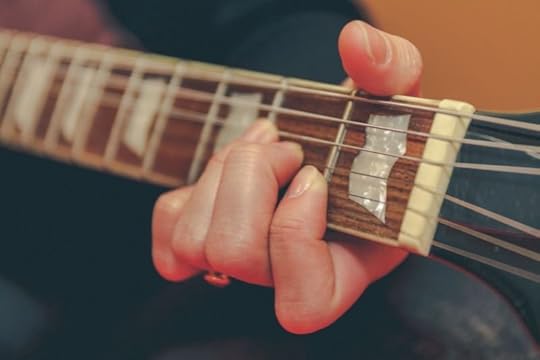 The Porn is the Instrument
The Porn is the InstrumentStill, it is, technically, not the porn that swallows them up, swallows us up, swallows anyone up. It is not the instrument that obscures our vision. The porn is not the problem. The porn is the instrument, the vehicle of the gods, so to speak. It is the means by which the ogre inside is fed.
No, the porn is not the problem any more than the case of beer is the problem or the affair partner, the casino, the kitchen, the endless chauffeuring and meals and baths of kids, the ceaseless work meetings and dinners, or painkillers are the problem.
None of those is the source of the blizzard of feelings and messages bombarding your head, chest, throat, skin, back, gut, and loins every day. All of those are the devices used to escape the feelings. Those are the new drugs intended to take over where the relationship can no longer provide the high. Life once again needs to be escaped. The feelings are just too much. Back into the cycle that you thought you had escaped.
Guys, the porn isn’t the f*ckin’ problem! It’s the symptom of a far greater beast. Granted, it’s an insidious beast. But, is cocaine or nicotine any less so? Parenting addiction? Obsession over building a business? Gambling?
Nah. Same family, different species.
But the point of contact, the point of commonality is the consumption of the feelings, the swallowing into darkness, and the longing to get high or escape. And, in the relationship, both people are experiencing it, whether they can put their finger on it or not, and whether they’re willing to admit it or not.
 Half-solutions vs. Lasting Solutions
Half-solutions vs. Lasting Solutions
When viewing porn or any other addiction or compulsion as the grand problem in a relationship, attempting to get porn counseling or even just marital counseling will be an ill-fated endeavor, because it’s not drilling down to the real root of the problem.
The only – yes, only – way to truly solve the real problems afflicting not just the relationship but the real selves of the two individuals is to go down and back into the conditioning of that small child and teen. For, that is where it all started. There wasn’t a damn thing wrong with that kid. There wasn’t a damn thing unwantable, unlovable, or not mattering about that wonderful child, any more than that sweet little girl you saw at the grocery store with her parents yesterday was some flawed, detestable little child. If you’re going to say that you were at her age, then she must be too. And so, was that kind young man of eight years old who held the door for you, when you walked into the post office, last week, or the sweet kids who wave at you every week from their pew at church. They must be just as disgusting as you were and not good enough as you once were.
No, it’s ludicrous, right?
But, it’s not enough to just see and say that. It requires a deep dive into the memories and messages of those who taught you this. It requires a seeing and feeling of the movie that was your life. As if watching the movie of that little boy who opened the door for you and his childhood where he’s learning the exact same messages, and you’re crying through the whole goddamn movie, because you bleed for this poor little fella and you’re just seething at the parents for the sh*t they’re raining down on him, whether intentionally or unintentionally. He’s the victim, more than anyone else in the story.
Except the story is you. It’s your story.
And you have to watch the damn movie. Your movie. Your name in the title. A Steven Spielberg Production of your life story. And there’s that damn thing that filmmakers do, called the ‘reaction shot.’ They don’t just show the ‘action’ shot of the train hurtling down the track or the woman screaming as she gives birth. They show the reaction of the reporter in the helicopter giving the play-by-play following above the train, or the reaction of the nurses as the baby gets stuck in the birth canal and is turning blue. The story is in the reaction shot. That’s what elicits our emotions. That’s where we know what to feel.
And here’s the sh*tty little thing that Spielberg does with those reaction shots that you don’t do with the movie of your life. When you watch the movie of your life, to the degree you remember it, you look at the actions of mom and dad, siblings and teachers, friends, and the like. The lens is always, always your own eyes, right?
But, Spielberg doesn’t let you get away with that self-trickery.[pause]
[pause]
Read that again.
Spielberg doesn’t let you get away with that self-trickery….which you were taught to do. They conditioned you to focus only on them. Do not, not, not look at or listen to yourself, especially what you feel or truly believe about yourself, because if you did, you would discover the voice of God, itself, whispering the truth of your greatness from the vast, pure echoes of your soul inside.
See, you were taught to see and hear mom’s and dad’s reality as THE reality, never allowed to see, hear, or much feel the reaction shot of the boy or the girl you were. But all the rest of us in the theater are watching the movie and are utterly dumbfounded, pounded with sadness, and angry as all hell. Because Spielberg forces us and you to look at the reactions of that little girl or boy that you were. The slumped shoulders. The endless tears you fought back. The gritted teeth. The immense sadness you were forced to stuff down. The anger you were never allowed. The insults or putdowns you endured. The slights and ignoring. The endless listening to how bad mom or dad had it. The justifications for their treatment of you. Or whatever it was. All of us see and hear, and now for the first time you do too, all of the reactions of that small child, that teen.
The world is completely different, childhood is completely different, your innards and life belief system are completely different when you are no longer allowed to avoid the reaction shots of your first 20 years of life.
That’s precisely what either great fricking counseling is, or great self-help work can be. But the truth is, a lot of counselors don’t know how to do it or do know how to but a whole lot of clients don’t want to do it, whether with a therapist or alone in self-work, because it’s too uncomfortable, too scary, too ugly, and, often worst of all, the implications in the present, while completely their own choice, can be profoundly unsettling, such as, ‘What does this mean for my relationship with my mom/dad/family, now?’ (Of course, you never have to confront your family now, but you still gotta do the work of your past, if you ever hope to heal.)
 Bottom line, until you go back, you can’t go forward.
Bottom line, until you go back, you can’t go forward.When do you tire of watching their version of the movie?
When do you tire of spending so much life energy feeding the ogre of those mendacious messages that you don’t matter, aren’t lovable, and aren’t wantable?
When do the echoes of the gods themselves rise up in the heavenly chorus of “NOOOOOOOOOOOOOOOOOOOOOO!!!!!!!!” from your soul, such that you finally brave the ugly, uncomfortable, the nasty, the brutal, and the scary to set your soul free to be what the universe has meant it to be from your very conception?
You were never bad! It was literally impossible for it to be so. You were taught a lie. And it’s time to f*cking undo it. The porn is not the problem. The conditioning is the problem.
Fix it!
Get the damn book. Do the work!
“There’s a Hole in My Love Cup” by Sven Erlandson. www.badasscounseling.com/books . Available as audiobook, ebook, paperback, Spanish, French, and with workbook.Thanks for reading.
-- Sven Erlandson, MDiv, Is The Author Of Seven Books, Including 'Badass Jesus: The Serious Athlete And A Life Of Noble Purpose' And 'I Steal Wives: A Serial Adulterer Reveals The REAL Reasons More And More Happily Married Women Are Cheating.' He Has Been Called The Father Of The Spiritual But Not Religious Movement After His Seminal Book 'Spiritual But Not Religious' Came Out 15 Years Ago, Long Before The Phrase Became Part Of Common Parlance And Even Longer Before The Movement Hit Critical Mass. He Is Former Military, Clergy, And NCAA Head Coach For Strength And Conditioning; And Has A Global Counseling/Consulting Practice with offices In NYC, NJ, And Stamford, CT: BadassCounseling.com
January 10, 2025
On Grief
Deep grief is one of the universal human experiences that no one can evade. Call it depression or even winter of the soul. It’s a pain of the soul that endures over some time.
And yet, as painful as it is, grief allows the soul to purge and reanimate, and bring forth new life and possibilities.
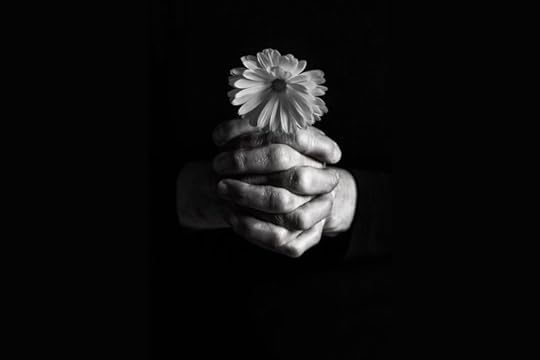 Winter of the Soul
Winter of the Soul
“Sven, you’ve got your Icelandic sweater on today,” the nonagenarian lawyer quipped, stopping at my table before getting his coffee and newspaper.
“Frank, I hate the cold, sometimes,” I responded. “There’s a reason I don’t live in Minnesota, anymore.”
He smiled and walked.
I can recall being in my twenties, during seminary years, and the first time hearing the phrase, ‘winter of the soul.’ It hit me, right away, as both fully explanatory and so deep. Just the phrase, alone, feels the heaviness it bespeaks.
One of the universal human experiences that no one can evade is the experience of deep grief. Call it depression, if you like. The pain of the soul that endures over a period of time is one of the grand inevitabilities of life.
Perhaps it slams into you when that loved one dies or seeps in when the work you’ve been at for so long no longer inspires. Perhaps it comes from a lifetime of loneliness or the departure of a lover. Maybe the loss of one’s people or one’s geography of choice ushers in the winter of the soul. Or possibly, surreptitiously, the slow roast from the inside that spreads through one’s bones from the debilitating beliefs one was taught as a child.
Winter is here.
And, it pulls the soul down. It pulls us down into the depths, down into the solitude we’ve struggled so hard to run from, overpowering our most titan efforts to stay busy or run.
GrievingWinter of the soul is grieving. It means to ‘feel loss.’ Something is gone and the thought of it causes an affective, or feeling response. That feeling becomes a winter of the soul as it takes over one’s life, no longer possibly avoided or overpowered. It just takes over. Despite moments or hours of respite or distraction, the soul has been swallowed into grieving the loss, simultaneously placing a weight on one’s chest and searing the insides. A malaise sets in and darkens.
I believe this is good. The soul calling us down is never a curse. It’s very easy to treat it as if it is a curse because it doesn’t feel good. But it is like the most brutal workout in the gym – the conduit to your highest and most powerful self, to that inner motor finally slowing down.
Grief Allows the Soul to Release & ReanimateThis is why, as a side note, that I as a former pastor was never a fan of the move that got made culturally in turning funerals into ‘celebrations of life.’ I’m all for celebrating life. But, what got lost was the ritualized opportunity and expectation to grieve – the safe space, so to speak, to do what the soul naturally desires to do when loss is incurred. Jump right to the celebration part and the soul’s need to purge pain gets skipped and, resultingly, embedded inside rather than disgorged. And so, rather than having any shot at healing, those touched by the death now bear another unhealed wound, and quite unnecessarily so.
The soul needs to go down. The winter needs to come. It needs to come frequently in life, just as the earth’s gravitation spins and tilts us to winter every year. Just as the soil needs to lay fallow, so also the soul. For winter is a time of purging the toxins and replenishing the dirt with new life vitamins. Far from a curse, grieving is the soul’s blessed opportunity to release and reanimate.
New life springs from the death, the loss, the grieving, the purging.
 Creation is invariably preceded by destruction
Creation is invariably preceded by destructionOne of the ugliest, most brutal truths of life is that things must die for things to live.
This includes friendships, places, health, relationships, families, careers, paths, purposes, and powers. The passing of each one is the vehicle offering transport to the next iteration, state, place, power, plan, or plane.
The grief is the loss of that old form that we so desperately do not wish to let go of. We cling to the mast of the very old wooden schooner ship, even as it slowly slips into the ocean from the hole in the hull, and as the remainder burns from the fire that started on it, and the whole thing reeks because it was carrying manure. We so cling to old forms because they are known, even if they have greatly decayed.
The winter of the soul is the inner realization that the mast and the surety of the ship – whatever that ship represented – are slipping from our grasp, no matter how tightly we cling and hope it will float. The gods of life and death beckon us to let go so that we can be led to higher ground. But because we so fear the depths of the ocean, we do not jump into the dark waters. But the dark waters are our fate, as the ship slowly sinks. For they are the medium that holds us as we move to the next phase of life.
We only drown from the icy waters when we allow the winter to take over without ever learning how to tread water, not to mention swim.
>> See Healing From Depression And Avoiding Suicide
Words are the Way for flushing griefIt is when we finally accept or at the very least engage the winter that we give the loss and pain an egress point. We have to be willing to go into the very pain we fear, allow ourselves to feel it and even cultivate it, so that we may also flush ever more and more of it.
This flushing comes not just through the sweet physical release of exercise, yoga, breathwork, or even rest. The flush of the deepest emotion demands words – spoken, sung, or written. There is an unnamed and immense catharsis that comes from the ongoing assigning of words to experiences, particularly when it comes to grief. Hence, counseling, therapy, journaling, songwriting, singing/listening to lyrics, letter-writing, and talking repeatedly with trusted loved ones all have the power to bring great release and relief. It is our natural instinct to talk about our problems as if we innately know that doing so just plain feeeels good.
>> See The Soul Disciplines and Keeping Your Spirit on Track
But, to deliberately institute it as a technique for healing, as a means for swimming, is to give direction to the winter of the soul, rather than suffering it as a seemingly insufferable, overwhelming, and unending fate. It is to engage in a belief system – i.e., that there is hope the pain will pass if I do this work, and if I face this scary beast of pain that dwells inside. When you have hope something will work in bringing a much better feeling, you engage the path and, perhaps, do so diligently.
To take command of the grieving process, rather than simply be buffeted and pounded by it, is to believe in new life after it. Otherwise, why even bother?
Thus, as an instrument of transformation, your transformation, the winter of the soul must be welcomed and engaged with these tools for swimming. Must. It’s not optional, not if you desire to live again.
 So, what are you grieving?
So, what are you grieving?Is it
That medical diagnosis
Failure
Death of a parent or sibling
Departure of a lover
The passing of a beloved pet
Children who’ve left the nest
Accelerated physical decay as you know you are slipping toward death
The slow fade of someone you care about
Emotional memories of past happiness, past loves, past places
Immense career frustration
The onset of overpowering childhood memories
Death of a dream
Financial loss or ruin
Death of a child
The state of the world/society
The mere passing of time, itself
What is your affliction pulling you down into the winter of the soul?May I encourage you to hold on to let go?
Welcome the yuck feelings from deep inside, even as you ongoingly offer them an egress point through your use of words in writing, therapy, and listening to music/lyrics that speak to your soul.
Repeatedly go back into the feelings and name them.
Write about them. Cry them. Rage them. Love them. Feeeel it all and give it all words.
Let the soul grieve. Let it do what it is calling you to do. Do not fight the winter. For, the winter will come, whether you welcome it or kick and scream against it. And the degree to which the winter of the soul serves you is determined by the degree to which you allow it all to come up and facilitate its exit.
 Up Jumps Springtime
Up Jumps SpringtimeAnd winter ends. When engaged and facilitated, for as long as winter demands, the winter does give birth to something new. The crocuses do come in replenished soil. New birth, new life, new nutrients, new growth, new forms, new joys, new peace…new…arrives.
If not engaged and facilitated, the winter becomes the long winter into the death of the soul. For “he not busy being born is, in fact, busy dying,” as Bob Dylan warned.
It’s a brutal, ugly experience to engage the grief, the winter, and to do so daily or weekly, actively and deliberately. It is to believe in the hope of spring of the soul. It is to believe that the winter of the soul with all its concomitant neuroses and ticks ends and also that the winter brings gems of wisdom, cascading waterfalls of new insight, as well as powers that can only come from the solitude of the dark forest in deep winter.
Do you believe in springtime?
Or do you believe that winter is a permanent season of the soul?
For, it’s ultimately not about actions but belief systems. What do you believe, even if only because the alternative is too scary?
When do you finally willfully and deliberately engage the grief that you’ve either been running from or been fully consumed by but failing to give an egress point? How bad does it have to get before you go into the very thing you fear most – the dark waters of the soul?
Wanna heal? Do the work.
Join the CMTY-PLUS! Community. Click to Learn More.-- Sven Erlandson, MDiv, Is The Author Of Seven Books, Including 'Badass Jesus: The Serious Athlete And A Life Of Noble Purpose' And 'I Steal Wives: A Serial Adulterer Reveals The REAL Reasons More And More Happily Married Women Are Cheating.' He Has Been Called The Father Of The Spiritual But Not Religious Movement After His Seminal Book 'Spiritual But Not Religious' Came Out 15 Years Ago, Long Before The Phrase Became Part Of Common Parlance And Even Longer Before The Movement Hit Critical Mass. He Is Former Military, Clergy, And NCAA Head Coach For Strength And Conditioning; And Has A Global Counseling/Consulting Practice with offices In NYC, NJ, And Stamford, CT: BadassCounseling.com
December 16, 2024
Community as Instrument of Personal Transformation
Editor’s Note: Sven wrote this article amid the Holiday Season when so many long for connection and community, and so many suffer the pain of disconnection, sadness, family pain, and more. In it, Sven discusses his rock-solid belief that creating what he calls the ‘Chosen Family’ can be massively transformative, often even more so, than family-of-origin. In his bold, cut-to-the-chase style, he provides hope for all struggling with aloneness and the desire to live more authentically. To that end, six months ago, Badass Counseling launched the free ‘Badass Counseling Group’ on Facebook that now bursts with 39,000 members. Seeking a more intimate experience, more resources, and more opportunities for deeper connection, people in the group and online kept asking Sven for something more. So, just recently, after months of work by his team, Sven launched the limited-enrollment, subscription-based CMTY-PLUS! on BadassCounseling.com . It’s an absolute game-changer! If you or someone you know is seeking greater soul community and others to share the soul journey with, please join these groups now.
Your Chosen Family: Community as Instrument of Personal TransformationEver had someone in your family that you wish weren’t?
I mean your family of origin and then the folks that come with that. It starts with parents and siblings, and maybe stepparents/step-sibs, then expands to cousins/aunts/uncles and grandparents, and eventually children, in-laws, nieces and nephews, new in-laws after a divorce, step-kids, and on and on.
In all of that pile of family, have you ever had even just one person that you really wish weren’t there, weren’t a part of the family, weren’t in your life? Well, it would be hard to find a person who doesn’t have at least one person they sometimes wish weren’t in their family. It’s a pretty common phenomenon. Heck, I’m quite certain I’ve been that person, over the years, that someone or another wish weren’t in their family, extended family, or stepfamily. It’s sort of an inevitability that the larger any family gets and the more it changes and people age and grow, the greater the likelihood of there being people whom you don’t like.
The part that really sucks about a situation like this is that you’re stuck with the person, whether you like it or not. On the one hand, you didn’t choooose this person, but now you’re stuck with this person in your life. And, of course, it’s far worse the closer the person is. A disagreeable uncle you only see at Thanksgiving is nowhere near as painful as a stepsibling you have to live with every day or a parent who continues to take advantage of you at 44, just as they did when you were 14.
That’s where it starts. It starts with one person. Sometimes, for some people in some families, maybe there is only one person they cannot abide. But, if that equation replicates, it can reach a point where you are in a family of multiple people you don’t want to be around, or multiple people who don’t want to be around you or treat you poorly.
Whatever the situation, perhaps you begin to distance yourself from the family. Maybe it starts with one holiday you decide to skip, calling in fake-sick, or gee-I’m-slammed-and-can’t-make-the-wedding. Recognizing that feels kinda good, that separation, perhaps your distancing or checking out grows a bit more and a bit more. Perhaps your family of origin decreases. Maybe you check out entirely; maybe you don’t. Maybe you maintain a half-relationship with your family or a cordial relationship, or maybe you’re just done completely.
... In with the new AKA the Chosen FamilyThe crazy part about this distancing from family is that our natural inclination is to think that this is something that might happen in a person’s 20s or 30s, say. Still, it can happen in some families in the teen years, tragically. This un-choosing of family, to whatever degree it happens and at whatever age it happens, is both painful and difficult. But, it can be so necessary.
As a result, a void is created where family, or at least certain people, used to be. And, since nature (and the human soul) abhors a vacuum, we seek to fill the place that the unchosen used to fill. Enter friendships and relationships.
We start to create and build relationships that can support us, or at least we try to. As we age, we get a little better at it and a little better still. We begin to develop our own community, our own sort of ‘chosen family’ – those people whose values and treatment more closely resemble what we ourselves strive to bring to the world. Maybe it is friendships, particularly adult friendships, that bring this. Maybe it is the new family you marry into that gives you the love and support you so desperately wanted, or still want, from your own family. Maybe it’s those connections you experience for the first time when you found your new family at college. Or maybe your workmates become your chosen family.
I can recall moving across the country, from Minnesota to Los Angeles, to be with a woman. As I lived there, a few years, and simply could not afford to go home to be with family in the far north, our neighbors and workmates became very important in our lives, in ways friends had never been so before for me. There was an intimacy in our little, 6-unit apartment building, as we had each come from somewhere else and sorta needed each other, needed those connections. We had our own happy, small community that meant so much to each of us. Thanksgiving and Christmastime were especially warm in ways those holidays had not been for me, in years.
Chosen family, I soon discovered, has the power to create in you the very thing that was never possible in your old configuration of family. Real growth, real support, and real love blossom. And, it’s a glorious thing.
“I’ve found my people”
“It’s like I’ve finally come home”
“These people are my family”
These are all common expressions when someone has found, or created, their chosen family, their community. You’ve found your people.
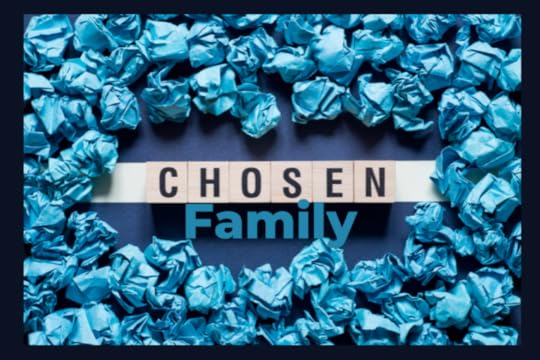 Chosen Family Journaling Questions
Chosen Family Journaling QuestionsHave you ever had the experience of ‘coming home’ when it wasn’t your family of origin?
What does ‘coming home’ mean to you?
Who is your chosen family?
Why them?
What specifically do they bring to your life?
What specifically is missing from your family of origin that your soul so needs?
For some who may be experiencing that support and love for the first time in their lives, it cracks open a whole new belief system, one based on the wild new notion, “Hey wait, maybe I am lovable.” To be appreciated, respected, and supported by people who have zero obligation to do either can be a powerfully transformative experience, from old into new. For, it conveys worth and can facilitate the revealing and expansion of self. Why now? Because here, now, among these people, it’s finally safe… safe to become.
I can recall during my years of seminary and after, when I paid my bills by tending bar, that my goal was never just to get people at my bar to open up and start talking to me. The real goal was to get people talking to each other, facilitating that in whatever ways I could. Because, then it’s about the place, not me. The place itself, as driven by these connections with each other, would take on its own warmth and charm. I was basically creating my own little congregation of folks who just wanted to connect, and my job was to make it safe. While they may not have all been lonely, I never was far from that old Billy Joel line,
They’re sharing a drink they call loneliness.
But it’s better than drinking alone.
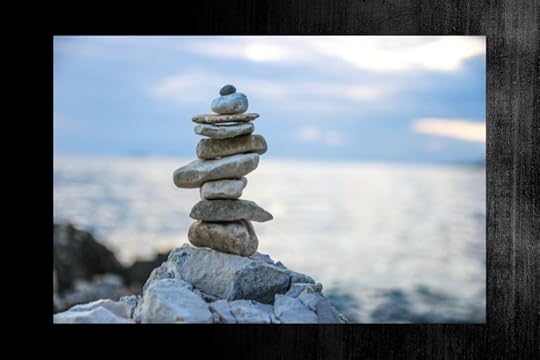 The Individual Soul Journey Together
The Individual Soul Journey TogetherI really believe in this notion of sharing the individual soul journey together. I think we lost something, as a culture, when religion began to wane in importance in the lives of so many people. I wrote about this 30 years ago in my first book, Spiritual but not Religious.
While there is nothing inherently wrong with individual or collective movement away from religion (and even as a former pastor, I’ve largely stepped away from religion, myself), one thing was definitely lost that has not been replaced fully. We lost that sense of spiritual connection, not to a god but to each other. You can have a relationship with a god in the privacy of your own room. But you can’t have a relationship with another, you cannot have a sense of community alone. And, I happen to believe very, very strongly that we all desire not just connection but soul connection. I think we all long to have deep conversations, and the safety to open up, even if only occasionally. I truly and absolutely believe that there is a palpable longing in our society and our individual lives to have real connections at the soul level, and not just with a lover/partner.
There is nothing in the world wrong with checking out and not wanting to connect with others. Nothing at all. And, sometimes, for some folks, perhaps the pain of life just got so bad that is the only option that brings peace. While I lament the pain this person has gone through, I simultaneously respect their need to protect themself.
However, that doesn’t negate the longing. And I believe that longing for connection, even for the person who gives up on ever having it, is part and parcel of the human experience, particularly at the soul level.
For, we are each on our own soul’s journey, whether we’re aware of it or not. Whether we call it that or not, we’re each seeking the connection to self and the peace, happiness, power, and fulfillment that comes with that.
A huge part of that is the desire to connect with others to sorta share the individual journey together. That sense of soul community can bring comfort on the journey, like Frodo’s Sam, Harry Potter’s Sam, and, well, everybody’s Sam at Cheers, even while each of the Sams is on his or her own soul’s journey. It is to share the journey, even if only for this period of time. Soul community – this chosen family – is a powerful thing in supporting the transformation from what-was to what-will-be.
At its least, this sharing of the journey diminishes the loneliness of going one’s own way. But even that is no small thing. To know we are not alone is a beautiful thing when having the courage to be alone on a path that doesn’t exist, but we are creating for ourselves. Even though the Sams in our lives are not on my path, they understand what it is to be alone on one’s own path. So, that sense of shared experience is warming and comforting. The loneliness inside quiets down or can even completely go away.
At its most, the sharing of the soul journey, even while each path is unique to each person, changes the myth we believe about ourselves, from unlovable to lovable, from not mattering to mattering. The mere presence of the community, itself, and the support it offers conveys to you the importance of you, the mattering. And there is no truth more revolutionary, more able to crush the rocks oppressing the soul than the revelation, “I actually matter! The real me, not just the me that does stuff for others. The real me matters! Damn!” This is because when one has been conditioned to believe precisely the opposite, over the course of decades, something like mattering is all but unfathomable. Nothing will make your head explode like that one epiphany.
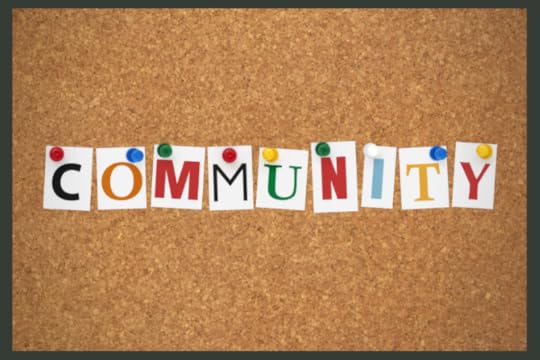 But how to Find or Create a soul community?
But how to Find or Create a soul community?The obvious question birthed by this discussion is, then, how do you find or create that sense of community? Well, the ugly answer is that creating a soul community, or a shared individual journey, is both terribly difficult and shockingly effortless.
What it really requires is what the rock group, The Byrds, sang about in their classic, “Turn! Turn! Turn!” Pulling from Hebrew Scripture, they sing,
A time to embrace
A time to refrain from embracing
1 - Stop Embracing Those Who Don’t Embrace YouPerhaps the very hardest part of creating/finding soul community is the courage to stop embracing those who do not embrace you. The creation of community built upon authentic self demands the rejection of community, or even just persons, whose connection is based on inauthentic self, or the self you’ve been conditioned to believe you must be. You cannot create new unless you have first created room for the new by rejecting that of the old that no longer works, that which no longer gives life. It is to engage the pruning of life and all that you’ve acquired or had foisted onto you, that does not breathe energy into you. In the Diamonds and Raw Sewage chapter and exercise from my book, There’s a Hole in My Love Cup, it’s all the raw sewage that must be de-chosen. And there ain’t nothin’ on God’s green earth that’ll test your nerve like ceasing to embrace those who do not, and perhaps never really have embraced you.
2 - Embrace becoming your authentic selfThe second difficult piece that often precedes the de-embracing, or de-choosing, the old or broken is the embracing of authentic self or at least embracing the becoming…the becoming, even if you don’t really know what the hell you’re becoming. For, the embracing of becoming is a rejection of the old forms when you know damn well how any new becoming is going to be received by old family, old friends, and old community. When you know, in advance, that new self will be rejected, despised, or even just questioned, the embracing of self and becoming becomes its own courageous act. It is you saying you matter when the voices of the old community or old family are implicitly saying that authentic you doesn’t matter. And that is a bold statement of self-worth, of self-love.
Both embracing and refraining from embracing are painfully difficult, brutal, ugly tasks because they come at such an extraordinarily high price. Yet, nothing is more necessary for the discovery of soul community. For, to build a community before these two happenings is to create a chosen family based on a version of self that doesn’t work. It is to create connections that you really don’t want to work. Because, if they’re built on old self then those connections will keep you stuck in old self. But, if they are built on new self, or at least the encouragement to become new self, they give room and foster the growth of the authentic soul.
Authentic Self Journaling questions:Do you see how the openness to or movement toward new, authentic self is necessary for the creation of soul community?
What are the aspects of old self that you’re still too scared to let go of?
Who or what do you most fear losing if you do move toward greater authenticity?
Or, what is the response you fear that would hurt most if you did do so?
How much has the pain of living inauthentically robbed life from you?
How bad does it have to get before it catapults you into the changes you know you need to make? List those changes.
But still, this is all well and good, but it doesn’t answer how to build soul community.
Actually, it does. For, all you have to do is focus on living in courageous, authentic communion with your own soul’s voice and you will begin to naturally attract relationships that breathe life into your soul. In fact, the more you have the courage to simply become your new self, the more the good will just fall out of the sky.
Think I’m full of it?Maybe you do. I would too. Heck, I did think that.
But the more I took it for a spin, the more I kept cutting away from my life, both outside me and inside me, that which was not me, and the more I embraced paths that spoke to and quickened my soul, the more the magic began to happen in my life. Relationships became deeper. Community began to cluster around me or with me. Shit just fell out of the sky. I know it sounds like total hokum, but it’s so true. And nothing has been more glorious than hearing clients who thought it hokum, too, come back to me months and years later and state, “Holy shit, Sven, you were right!” And it’s not that I give a crap about being right, but that I love to see people experience the divine fruits that come from the authentic life.
If we just naturally go in the directions of our soul’s inclinations, we’ll either find or create connections and families that seem to rise from nowhere, because we’ll cross paths with others who share the very paths or inclinations we do. A community is born; a chosen family sinks its first roots. It will arrive at its own speed when it is time, not necessarily when you want it. And, as long as you are tied to wanting, or needing it, NOW, you are not living authentically but are trying to force the equation of your life. For, living your soul journey demands an openness to the movements, infusions, and waiting of the divine, universal soul that connects all things. The path of authentic life is not grasping and needing but living with an open hand that reaches but lets go, at the same time.
 Destruction and Creation of new community
Destruction and Creation of new communityNow, the truth is, there are some folks who have the experience of standing up for the expression of new self, and the family-of-origin (FOO) actually surprises. The FOO, in these somewhat rare cases, responds with openness, acceptance, and perhaps even contrition for not being accepting and welcoming of your new self, in the past. And, nothing will blow away the intrepid soul that is willing to risk revealing real self to family more than that same family saying, “F*******k! We f**ked up! And hell yes, we accept and embrace new you.” It’s the very thing many folks spend their entire lives trying to make happen, only to be met with a lifetime of disappointment. So, when it does come for some, it’s nothing short of earth-shattering.
But the work is not done there. For this initial acceptance to truly bear fruit, long term, there must be many conversations that deconstruct the FOO model previously in place. That, alone, will require the other folks involved to effectively engage their own movement toward authentic self. If they, too, do not engage in the journey toward greater soul self, they will snap back into old patterns, old beliefs, and the old family myth that you and they need to be thus-and-so. This is why a family that does this is so rare. Like hitting the Powerball numbers, so many things must happen somewhat simultaneously, not the least of which is others being open to the same hard journey to self that you are on.
In the vacuum of the destruction of the old forms of the FOO, there must be creation of new community that is life-giving. And, this is done one relationship at a time, inch by blessed inch. Creation of soul community requires that each person begin to grow the courage to speak and live authentically, moment to moment, even as there are a million stumbles along the way. There must be room for error, lots of forgiveness, lots of patience, and lots of humility.
It can be done within a family-of-origin, but in so many ways, it is much more difficult than building a soul community outside of the FOO. However, if endeavored and successfully created, there are few things on earth more life-giving and heartwarming than the creation of the very thing you’ve longed for all your days.
Chosen Family and What the Young can TeachFor most, however, the creation of chosen family is the alternative that can be so roundly and surprisingly life-giving, because it gives the hope and confirmation that life is not over, death does not set in, just because the family-of-origin is not the family you wished it would have been. And, the new growth of self within that hope and acceptance is the fulfillment of the longing of the soul.
Of course, the beauty of the internet is that this sense of soul community can happen without people being in person. The young kids have taught us the truth of this. The younger generations who have been doing multi-player gaming for years, even decades, often find their own sense of community there, which is why some become so dependent upon gaming. If I’ve seen it once I’ve seen it a million times with clients or kids of clients. In a world where they feel alone, unaccepted, or even unwanted, strong connections, friendships, and even love can develop in virtual environments.
Online dating is little different. I met my girlfriend of 11 years through an online dating site, when she was in NYC and I was in Oakland, CA, ministering to and living among the homeless. The powerful connections of soul community can absolutely happen online, just as surely as they can happen in person. They come with potential pitfalls, such as catfishing and the like, which I’ll not go into here, because there are ample resources discussing the pitfalls and precautions when online. And those are good things to learn.
But, we need not shy away from connecting online, when done so with clarity and wide-eyed awareness. For, truth be told, even in-person relationships and communities have held the potential for harm and hurt. In all things, grow your connection with your own inner voice, so that you can venture boldly yet safely in the world.
 The Soul Journey Journaling Questions
The Soul Journey Journaling QuestionsSo, as with all things, we come back to the importance of continuing your own soul journey as you now feel called to create, grow, or discover a soul community and chosen family of your own. Here are some journaling questions for you in this time of contemplation and new movement on your soul journey:
Are you living authentically, moment to moment? In what ways can you become better at doing so?
Are you embracing and refraining from embracing those things and people that require one or the other? In what ways can you be doing more of this?
What is your greatest fear in all of this, especially when it comes to connecting?
What do you most fear letting go of or walking away from?
What do you most want out of soul community?
What is most missing in your life regarding connection and community? Be specific.
Are you able to simultaneously let go of the thing you want most in this?
Is it time to reach out in new directions for sharing the individual soul journey with others? Which are the new avenues that naturally resonate inside you that you’d like to consider or try? List your fears and anxieties. List the upsides and possible gains.
Are you ready?
It’s time!
Please feel free to check out my free online moderated community, Badass Counseling Group, on Facebook. If you long for a closer community, and lots more excellent resources for growth and transformation to greater ALIVENESS, go to www.badasscounseling.com and click on CMTY-PLUS! It’s what you’ve been waiting for!
Thanks for reading.
Learn more about CMTY-PLUS!——————
-- Sven Erlandson, MDiv, Is The Author Of Seven Books , Including 'Badass Jesus: The Serious Athlete And A Life Of Noble Purpose' And 'I Steal Wives: A Serial Adulterer Reveals The REAL Reasons More And More Happily Married Women Are Cheating.' He Has Been Called The Father Of The Spiritual But Not Religious Movement, After His Seminal Book 'Spiritual But Not Religious' Came Out 15 Years Ago, Long Before The Phrase Became Part Of Common Parlance And Even Longer Before The Movement Hit Critical Mass. He Is Former Military, Clergy, And NCAA Head Coach For Strength And Conditioning; And Has A Global Counseling/Consulting Practice with offices In NYC, NJ, And Stamford, CT: BadassCounseling.Com
October 10, 2024
The Insidious, Oppressive Power of Anxiety
For some, it seems like a giant leap to say. For others, it’s an obvious statement of fact that, fundamentally, anxiety is fear.
To worry about what might happen, to feel anxious over how things are going or where things seem to be going means, at the root, to fear what might or might not happen. Be it anxiety regarding family, money, politics, AI, parenthood, climate/environment, job, relationships/love, society, friendships, the state of the world, or anything else, it is fear about how this or that thing might negatively impact me and/or those I care about.
On one hand, there’s nothing wrong with anxiety. We all feel it. It’s a perfectly normal human feeling to have. In fact, in certain situations and amounts anxiety and fear keep us safe from eventualities that might cause us harm. A father watching his five-year-old boldly wade into the waves on the beach feels a very smart anxiety born of the realization that the ocean, even on a pretty beach, is an unpredictable and dangerous force that could put that child into an instant life-threatening situation. So, the father watches keenly, as does the lifeguard in the tower. Anxiety can be a very helpful human emotion – heightening our senses, and putting us into a state of alertness and readiness to act.
But, what most of us struggle with on a regular and sometimes daily, even hourly, basis is anxiety that not only rises up to seize our attention in a heightened moment, but throbs forever in the background of our lives. There is a seemingly never-ending cacophony of crud to worry about and fear happening.
The truth of this is found in the mere fact that:
Mental health issues in North America have massively increased, to the point where systems are overtaxed, and people cannot get help;
There is a palpable spiritual longing as people seek something – some bigger power or tools – to assuage their lack of inner peace, even as the rolls of religious institutions, which were traditionally in the business of this very thing, in the US and Canada continue their 50-year decline;
Drug and alcohol usage is prevalent and in many ways and places seeing steady growth;
Escapism through consumerism, social media, gaming, gambling, virtual reality, eating, and relationship infidelity continue to grow;
The proliferation of even healthy means of calming the mind and spirit also continues, as the wellness and fitness industries grow.
Every single one of these is a testament to how bad our problems, specifically those in the sector of anxiety/fear have become and how powerfully they impact our own sense of happiness and inner peace. We can see the size of a problem by looking at the size and breadth of the apparent antidotes. If the problem were small or even medium, it would not birth so many and such large efforts to make it go away.
@badasscounseling #happiness The power to name what is at the root of our fears is the power to defang our fears and mitigate their power over our lives. #success #peace #spirituality #mentalhealth #divorce #women #marriage #family #foryou #fyp #fitness #yoga #depression #sad #fear #courage #viral #trending #strength #healing #pain #love #kids #parents #dad #money #action #new #gym #music #military #art #selflove ♬ original sound - Badass CounselingYep, Houston, we have a(N Anxiety) problem.
Briefly: October, 2024, Presidential Election
Any discussion of the larger issue of anxiety, particularly at this precise moment in time, would be negligent if it did not give at least a cursory look at the US Presidential election barreling down on us in just a couple of weeks. Much hangs in the balance for America and the world. Regardless of who your candidate is, there is great anxiety in a large amount of people. Issues such as immigration, abortion, the economy and cost of living, climate change, the Middle East, Ukraine, and health care worry many, if not most of us. And, with each new election these issues seem more dire and the election outcome seems scarier.
And, as we’ve seen in previous elections, this anxiety is so insidious and powerful that it has split many families and plundered even the longest-time friends, such that they remain broken to this day as a direct result of it. Anxiety and fear can so effortlessly birth anger and even hate that then get turned onto one another, even between those with the formerly tightest of bonds. These hurtful feelings and actions have themselves become so exhausting that there is among many a longing for civility, reconnection, and some new peace and kindness.
Sadly, the election stuff is all on top of the significant everyday anxieties we each live with. What was already bad is exacerbated in this long season of waiting for November 6th, when the 2024 election is over.
Coping with vs. Healing Your anxietyI’m not here to teach you how to cope with anxiety, stress, worry, or really any other powerful human emotional state.
For the most part, I don’t care about coping. Further, there are a million other therapists, clergy, shamans, yoga teachers, and helpful uncles/aunts who can teach you how to cope with an anxiety-producing situation or ongoing state.
What I care about is actually healing the root of the problem driving the symptoms.
Below anxiety and fear is a belief, and it’s nothing complex. In fact, it’s quite simple. The belief is that if this thing happens (or doesn’t happen), I won’t be okay. It will hurt, cost me (time, money, energy, life, love, comfort, security, or something else I treasure), or just be unbearable. And I’m not going to dispute you by saying that all of those things that you fear happening wouldn’t suck. Of course they would. Duh! You wouldn’t fear them if they wouldn’t suck bad, should they came to pass.
But something sucking, hurting badly, being a pain in the ass, or causing even immense grief is very different from me, in the end, not being okay, at all. My having to go through a period of hardship, even a long period, is one thing. But, very often in life we live as though that which we are anxious about would bring about a permanent, irretrievable state that I would not survive. In other words, the deep fear underneath anxiety is that if this thing comes to pass, I won’t be okay, and I won’t ever be okay. The greater that belief, then, obviously, the far greater the anxiety accompanying it.
View this post on InstagramWhat if your worst fear were to happen?A post shared by Sven Erlandson (@badasscounseling)
One of the exercises I go through with my clients as we discuss their great anxieties, whether regarding the election, their finances, an abusive relationship they fear leaving, oppressive family dynamics, or the state of the world, is that I ask them, “If this grand anxiety-producing thing were to come to pass, would you put a gun in your mouth and pull the trigger, yes or no? Would you kill yourself?”
Well, that’s a bit extreme, Sven, don’t you think?
No, I don’t think so. See, the amount of terror in people as they consider x, y, or z things happening is often equivalent to the belief that it would be a fate worse than death. Because people often lack the ability to drill down to the root of their fears, and thereby defuse them, the emotions expand, to the point of consuming the host, blowing up everything into the realm of epic proportions. And, if you’ve ever been consumed by fears and worries, you know exactly what I’m talking about.
So, I reverse-engineer it. Let’s assume your worst fear in this situation were to happen. Would you then kill yourself?
98% of the time the answer, after some coaxing to engage the question and go deeper, is ‘no.’ (If the answer is ‘yes,’ we explore that. And more often than not, by deeper excavating, we discover they wouldn’t actually do that, but it just feels that way.) So, after that is acknowledged, I plainly state the obvious, “So, you would survive. Life goes on. You would make the conscious choice to live. You want to live, even if that bad thing happened. By admitting that, you’re admitting that this giant thing you fear, while legitimately scary, is actually not as big as you’ve made it out to be. In other words, it is manageable.”
So, then the question becomes, if you want to live then it’s a very reasonable assumption that you actually want to be happy and have peace inside while you live out this existence that you’ve now chosen. I mean, if you’re choosing to live, do you really want to spend the next 10, 25, or 60 years you have remaining on this earth miserable? Obviously, the answer is a resounding ‘No!’ Otherwise, you wouldn’t be spending all this money on counseling or all of this energy doing self-help work if you actually wanted to be unhappy, anxiety-ridden, and full of anger and bitterness.
View this post on InstagramCan you let go of that anxiety belief system?A post shared by Sven Erlandson (@badasscounseling)
But, what if creating happiness in this new existence demands letting go of what you wanted to happen, letting go of the belief system that you could ONLY be happy with the old way or ONLY be happy if things went the way you wanted them to go?
See, your existing belief is that you cannot be happy without x, y, or z happening or staying the same. Thus, to be happy in any new reality demands that belief change. But, you don’t want it to change. So, you cling to the old belief. That’s where your inner pain comes from – not having what you want to have or want to have happen.
As those darn Buddhists like to remind us, so much suffering, if not all of it, is the result of clinging. In this case, and really in nearly all cases, suffering is the result of clinging to the belief that I won’t be okay with a new belief system, letting go of the old one.
And that, my friend, is where you’re at, right now.
Your anxiety, your worry, your fears are, at their root, cemented in the belief – the untruth, really – that you cannot survive and/or cannot be happy, or you’ll refuse to be happy, in any reality that isn’t the way you want it. Yet, if you’re choosing to live, even if the worst happens, then you have no choice but to accept the possibility that you can be happy. Otherwise, you’re just choosing to stay stuck in misery. Truth is, you can make that choice. It’s your life. Spend it your way. But why would you want to?
So, you have this thing, person, path, idea, or reality that you clearly don’t want to let go of, because you believe you can’t, or you simply won’t. If you’re gonna be happy in this lifetime, you have no choice but to let go of the belief that you cannot be happy without this thing, person, etc. The price of happiness is changing your belief system.
So, what do you choose – happiness or your old belief system?
@badasscounseling “There’s a hole in my love cup”: The life-changing int’l BESTSELLER that’ll take u to the scary ugly places inside and step you thru the healing process. Now available at BadassCounseling,com. Download the free podcast, The BadassCounseling Show. At Spotify, Audible, Apple Music and other podcast sites. Life-changers! Also my newest book, ‘BADASS WISDOM’ is there! DIY video courses on the website, articles/blogs and more! If you want personal online counseling, read the counseling page on the website. #ceoofcounseling #mentalhealth #selfcare #selfhealing #selflove #selfhelp #wellness #healing #yoga #women #core #workout #gym #fitness #training #gym #psychology #therapytiktok #therapy #counseling #badass #fyp #f #g #fypシ ♬ original sound - Badass CounselingFrom being always anxious to aliveness
Let’s get this out of the way first: if you choose your old belief system (which is totally your choice and, god bless ya’, I support you 100%), you then have zero use for me and my work, as I’m in the business of helping people transition from old into new, from past beliefs to new beliefs, from unhappiness and unrest into peace, joy, love, and, ultimately, ALIVENESS!
I’m here not to get you what you want – i.e., this success, that person, this title, or that acquisition. I’m here to get you that feeling, or feelings, you most seek, and seek at your deepest, quietest place inside – those feelings of lasting peace, deep fulfillment, happiness that is more than just in the fleeting moment, and a sense of ALIVENESS that transcends this or that new high. I’m not here to convince you you should make this transformation, only to assist those who know they want it. So, if it is your desire to stay stuck, holding onto your old beliefs, I wish you well on your journey.
For those who do choose change and growth, those who do choose life and happiness, it is time to begin the grieving process now, before the thing you fear happening possibly happens, or the thing you want never comes. I mean, you can wait until after it happens, if you like. Nothing wrong with that. But the net effect of grieving the loss, in advance, is that you’ll live with radically less anxiety now. If you can begin the movement into the new belief system now, you can begin to mourn the loss of the old now, you will naturally have less fear, which means your movement to greater peace actually begins now, rather than later, if that dreaded thing does or does not happen.
You need to be welcoming all of your feelings of loss, sadness (over things not going the way you wanted), anger (over having to change and let go), disappointment, frustration, betrayal, disgust, rage, misery, and every other emotion on the feelings wheel. You need to begin thinking about the eventuality you’re not wanting and allow all of the feelings to rise up in you. Feel them. Allow your body to express them by screaming, crying, shaking, laughing, moving in ways that release energy for you (working out, running, yoga, biking, walking, stretching, etc). As you allow feelings up, the body naturally seeks to release the physical aspect of it through movement. In fact, you likely won’t even be able to sit still. You must give the body what it needs when inviting all of these feelings surrounding grief up from your soul.
View this post on InstagramVerbalize Your AnxietiesA post shared by Sven Erlandson (@badasscounseling)
But, contrary to the belief of many people, the physical release is not enough. The soul release – the actual release of the emotional charge – only happens with words. Whether with that very patient and non-judgmental friend, the compassionate and calm clergyperson, the adept therapist, or even in your own journaling and writing of letters (that you do not send), you must begin to verbalize, or put into words, what you are going through. All of the thoughts, all of the feelings, all of the fear, all of the old beliefs, all of the anxieties must come out of you. All of it.
If you want peace and joy on the new path, you have to fully flush out the old. There is something quite natural in the human experience to do precisely this.
From a young age, we desire to tell mommy or daddy what happened when we scraped our knees or someone called us a bad word on the playground.
When we’ve had a hard day as adults, we desire to talk to our spouse or best friend.
When life has kicked our ass with some major tragedy, we seek out that kind, consoling oldest friend, or the cleric or therapist.
It is just a natural human instinct that wants to talk sh*t out, because it feels so good when we do. That is proof positive that what I’m talking about here works and is what we all seek. Of course, the problem is finding someone who can actually listen without judgment or fixing, someone who can help us skillfully and quickly get the pain out and give it words that maybe we, ourselves, struggle to find. So, there are tools that can help us do all of this on our own, which is precisely why I do what I do – to help you heal yourself quickly and effectively.
@badasscounseling #trust #fear #relationship #bf #mentalhealth #cool #gf #fypシ #parents #work #motivation #motivationmonday #school #foryou #fyp #yoga #sports #strong ♬ original sound - Badass CounselingUse Words to purge anxiety from you
It is very important to remember one thing, above all else. It is not – I repeat, IT IS NOT! – enough to merely think about these things that afflict you, that hurt, that you worry about, that are attacking your sleep and sanity. Thinking solves nothing. In fact, thinking and thinking about them only makes them worse. Because, as long as you’re merely thinking about these things that cause you pain, these things are still in you. The goal is to get them out of you…with words. The more you do that, the more the memories/thoughts and the emotional charges attached to them radically decline in power, and eventually go away completely. Whereas, merely thinking about them only causes them to increase in power as they churn, over and over again, in the mind.
However, the opposite is true, too. Not thinking about them only stuffs them down deeper and they forever try to poke back up through the shield you daily work to maintain between your sanity and those stuffed-down memories, thoughts, and emotions. In fact, this is where most people have been taught to expend their energies – bottling up their thoughts and all the feelings that go with them. Taught it from childhood, most folks discover by their teens or twenties that they’re spending a whole lot of energy and effort trying to avoid those thoughts and feelings. All manner of distractions and self-medications get employed to make those dangerous thoughts stay packed down and bottled up. Over-working, gambling, boozing, smoking, popping pills, busyness, over-parenting, creating chaos, over-eating/eating obsession, over-exercising and more become ways to distract from all the memories and feelings inside that you claim to have stuffed down and not think about or feel. We spend our lives running, just a half-step ahead of all that crud biting at our ankles, seeming to want to drag us down.
Therefore, someone coming along and saying that you gotta turn around and face the very crap you’ve been running from sounds just mad. Crazy! It sounds far too scary.
Yet, welcoming the thoughts and feelings, feeling them, allowing them out through the physical release and giving them words, whether verbally or in writing, IS the grieving process. Then, going even deeper, as I teach in my method, to find the core beliefs in you created by those past memories and feelings heals even more and brings greater release and ALIVENESS.
This whole process ain’t pretty. In fact, it sucks…until it doesn’t. The more you do it, the more you actively draw up from within you all of the feelings you’d really rather not feel and give them a written or counseling avenue for expression, the lighter you’ll become. Not only will the emotional cloud lift, more and more, but you will literally begin to have more spontaneous physical energy. The whole system that is you works together in symbiosis.
And, the more you dive into discovering the core beliefs running your entire life (the beliefs you cannot see with the untrained eye), the more you move from not just healing to a state of thriving.
Have You Subscribed to Sven Erlandson's Monthly Email Newsletter? This is not coping.(Sven, couldn’t it be argued you just laid out a whole bunch of coping mechanisms there? Nope. Coping is doing everything to basically allow the root problem to exist inside while dealing with symptoms. Healing means welcoming and releasing the feelings that naturally grow out of changing the core belief system. Those are two vastly different things.)
View this post on InstagramWhat issues create the most anxiety for you?A post shared by Sven Erlandson (@badasscounseling)
On a piece of paper, list the top ten things that are ongoing sources of anxiety in you, the ones that conjure the most worry, fear, pain, sadness, anger, or what have you. List them. Then, after each one, write about all of the feelings you feel regarding that one and why?
Write about when it started and the story of how it started. Write it all out.
Now, write about all you have done to try to make those thoughts and feelings go away.
Journal also about what you most desire to happen in this scenario and why. While you’re doing this, write down all of the feelings that are coming up inside of you. How does your gut feel? What about your chest and throat? Your skin? Your head? Your pits and hands? Write it all down.
Fully lay out on your pages all that you most want to NOT happen.
Write out what all of your greatest fears are.
Write down every possible scenario that could happen and every feeling it would or could bring with it that you fear.
Write down what is happening in your body as you think about these things.
If you need to get up and walk around while you’re doing this journaling exercise, do so. Maybe you want to do a bit of stretching. Maybe you want to lie flat on your back and simply lay there while you allow all of these thoughts and feelings up. Then roll over and journal some more. Then lay back and allow more up.
This is what I do. I toggle between simply laying down with my eyes closed, allowing up everything, and opening my eyes to journal on a pad of paper. I have always done so much journaling right before sleep, after sleep, or in the middle of the night. Find a rhythm that works for you.
One thing I recommend to people who might be bringing up thoughts, feelings, and memories that are particularly highly charged is to go into the gym and journal in between their sets of lifting weights. I have been doing this for decades. It enables me to bring up the choicest, most high-powered memories and feelings. I can immediately release the physical energy through lifting heavy weight (or less weight more times), while then release the emotional charge through journaling in between sets and doing so in the strongest language possible. It’s a profoundly effective combo tool for releasing the most venomous memories and charges inside.
Lather, Rise, RepeatThen, after using all of these tools, do as it used to say on the back of shampoo bottles, “Lather. Rinse. Repeat.” Keep doing this, in other words. The more you do this, the better you become at it. And, most importantly, the more and more quickly you begin to experience not just a big release in the moment, but a profound and enduring relief in your life. You begin to experience a physical sense of feeling lighter. You begin to experience more spontaneous energy.
@badasscounseling Answer to @crispycajunbeachbum #fail #fear #foryou #fyp #selflove #love #work #young #boys #girls #mentalhealth #success #love #work #school #gaming ♬ original sound - Badass CounselingBadass counseling anxiety Resources
But this whole discussion of anxiety, worry, fear leaves one unanswered question:
What about those core beliefs that I mentioned in the last section?
What do you do about those, especially if you cannot even see them?
And what’s the effect if you don’t even touch them?
What happens when we have an experience that hurts is that it not only conveys an emotional charge that attaches to the memory of that event, but it carries a charged meaning or message. It’s the underlying message. For example, if you bring up an idea at work for how to do something differently, and your coworkers or boss laugh at you and your idea, it conveys the underlying message, “You’re an idiot,” or something in that food group. There’s an underlying message that doesn’t have to be spoken. But, it’s very clear.
Well, that message imprints in you, to some greater or lesser degree.
As we age, we get better at blowing it off or letting it not stick. But, when we’re children and teens (and for some folks it never goes away), those messages imprint in us at a very deep level. As I discuss simply in my book, There’s a Hole in My Love Cup, it’s as if wet cement gets poured onto the bedrock of your little soul as a child. Then the words of those underlying messages get written into that wet cement, much like the neighborhood kids might write in the newly poured sidewalk cement with a stick after the city workers leave.
>> See What Makes “There’s a Hole In My Love Cup” So Badass Effective?
Those messages that get conveyed to the child not only get written into the very foundation of that child’s personhood, but they harden. They calcify. They concretize. And worst of all, like a virus, they infect the entire operating system of the machine that is you, remaining forever undetected. As you age, you just assume what you’ve been taught: Something is wrong with you. And, that belief causes you to act differently, think differently, socialize differently, dream of your future differently, aspire differently, speak differently, carry your body differently, and so much more.
But the truth is, there was never anything wrong with you. You were taught a lie, a lie (or lies) that you cannot even see. Those lies become the very foundation of your anxieties and fears. Fears of being found out to be bad inside. Fears of failing. Fears of succeeding. Fears of what people will say. Fears of never mattering. Fears of being left and being alone. Fears of putting your real self out there.
The fears and anxieties are seemingly endless. But, with the right tools you can go down to the very foundation of who you are, identify those messages written into you, and pull them out, so that you are finally, for the first time in your life, operating authentically and not operating from a place of deeply embedded worry and self-loathing.
This process, in conjunction with the work of welcoming and actively releasing all of the memories and thoughts with emotional charges, leads to a life of far greater happiness, peace and ALIVENESS! We go from merely surviving to finally THRIVING!
@badasscounseling Answer to @austin13fox #healing #mentalhealth #spirituality #motivation #yoga #foryou #purpose #fypシ #women #men #psychology #fitness #health #inspire ♬ original sound - Badass CounselingAre you ready to deal with your anxiety?
If you are, then go now and get the book, There’s a Hole in My Love Cup. Get the workbook that goes with it, full of journaling prompts (including additional content). Love Cup is available in Spanish, too.
Download the free podcast, The Badass Counseling Show! It’ll rock your world.
Get the DIY video courses here.
Join the free Badass Counseling Group on Facebook. Or simply enjoy the 1000+ free videos that I’ve made for you on TT, FB, IG, and YT to help you heal.
But dive into the work. Turn and face the crud you’ve been running from. Your best life awaits you!
Thanks for reading.
Subscribe to the Badass Counseling Monthly Newsletter!
-- Sven Erlandson, MDiv, Is The Author Of Seven Books, Including 'Badass Jesus: The Serious Athlete And A Life Of Noble Purpose' And 'I Steal Wives: A Serial Adulterer Reveals The REAL Reasons More And More Happily Married Women Are Cheating.' He Has Been Called The Father Of The Spiritual But Not Religious Movement After His Seminal Book 'Spiritual But Not Religious' Came Out 15 Years Ago, Long Before The Phrase Became Part Of Common Parlance And Even Longer Before The Movement Hit Critical Mass. He Is Former Military, Clergy, And NCAA Head Coach For Strength And Conditioning; And Has A Global Counseling/Consulting Practice with offices In NYC, NJ, And Stamford, CT: BadassCounseling.com
September 16, 2024
Narcisismo o Los Que Toman en Extremo
¿Cómo encaja el término narcisismo en tus intentos de comprender mejor lo que estás experimentando en otra persona o en ti mismo? Aunque prefiero el término Extreme Taker (los que toman en extremo), la historia del origen detrás del narcisismo explica mucho sobre el fenómeno.
También proporciona una perspectiva sobre cuánto coraje se necesita para aceptar la dinámica en torno a los tomadores extremos y los dadores extremos. Para sanar, necesitarás mirar profundamente dentro de ti mismo para comenzar a identificar no sólo el dolor y los miedos que te han impulsado mal durante demasiado tiempo, sino también las creencias fundamentales que te han enseñado sobre ti mismo y que te mantienen arraigado en patrones que están socavando tu felicidad, tu sentido de identidad y tu paz interior.
Un contexto para el narcisismoLove bombing
Trauma generacional
Complaciente
Simping
Gaslighting
Desencadenado
Tóxico
Codependiente
Alienación parental
Vínculo traumático
Y podría seguir enumerando todos los términos de la psicología popular de nuestros días. Pero ninguno (ni uno) de ellos está más trillado, sobreutilizado y privado de significado que, por supuesto, "narcisista". Hoy en día todos son narcisistas. "Mi ex es un completo narcisista", "Mis padres son tan narcisistas", "Mi hijo adulto tiene tendencias narcisistas y me está volviendo loco", "¿Cómo sé si soy narcisista?", y muchas más afirmaciones en esta obsesión por el narcisismo. Al parecer, todo el mundo está convencido de saber qué es un narcisista, porque lo han leído en el sitio web de Mayo Clinic o porque han leído unos cuantos artículos en Google. (Sin mencionar que hay personas que dedican su vida adulta y años de formación, y que a menudo escriben esos mismos artículos, diagnosticando erróneamente enfermedades como ésta, todo el tiempo).
Pero la cosa es que, como muchos saben, existe la definición clínica que estudian y diagnostican psicólogos y psiquiatras. Por otro lado, está el uso más común de "narcisista" utilizado por las personas que intentan encontrar una forma de expresar su experiencia. Este término se ha popularizado precisamente porque sirve para eso: para ayudar a las personas a comprender mejor lo que experimentan en otra persona o en sí mismas.
Quizás lo sepan o no, pero no soy psicólogo ni profesional de la salud mental de ningún tipo. Me dedico a la orientación espiritual y soy ex clérigo. Trabajo con sistemas de creencias, sanando el dolor y ayudando a la gente a pasar de la supervivencia a la prosperidad. Así pues, lo único que sé sobre el narcisismo, o lo que me interesa del narcisismo, es su origen, porque estudié las lenguas antiguas griego, hebreo y latín a nivel universitario y de posgrado, y domino bastante bien los sistemas de creencias de las culturas que las utilizaban. La psicología, una ciencia que ha existido durante 200 años, aproximadamente, no inventó la noción de narcisismo ni las tendencias narcisistas. En realidad, fue adoptada de poetas-teólogos de la Antigua Grecia.
 ¿Cuál es el origen del narcisismo?
¿Cuál es el origen del narcisismo?La historia de Narciso trata del hijo mortal de un dios y una ninfa. Básicamente, este joven era un hombre apuesto y un día vio su reflejo en un estanque. Se enamoró de inmediato y pasó los días adulándose a sí mismo en aquel estanque, donde acabó muriendo de amor no correspondido: un corazón roto por amar a alguien, en este caso a sí mismo, que no le correspondió, pues era sólo su reflejo. Su autoobsesión lo mató.
Pero la cuestión es ésta. Esta historia, escrita por el poeta griego Ovidio, era algo más que su intento de describir un tipo de personalidad, como ocurría muchas veces con las historias de los dioses y su progenie. La historia habría sido suficientemente interesante simplemente con esa descripción de la personalidad y la lección de vida que ofrece: el ensimismamiento puede matarte
Pero, ese es el efecto. La muerte por tendencias narcisistas, como las que claramente mostraba Narciso, no cuenta la verdadera historia del por qué. ¿Por qué murió así? ¿De dónde vinieron las tendencias narcisistas de Narciso? ¿Qué causó todo esto?
Y aquí es donde muchos de los profesionales clínicos y la mayoría de las personas no especialistas que utilizan el término "narcisista" a menudo se equivocan por completo. Porque, contada así, la historia habla de un individuo aislado, que está enamorado de sí mismo y muere. Pero, ¿a quién le importa que muera un mortal hijo de dios? Qué más da. ¿Por qué debería yo, como lector o espectador de la historia, tener algún sentimiento a favor o en contra de Narciso?
Lo que provocó esto es que existió una ninfa de las montañas, que se enamoró de Narciso. Pero esta ninfa había sido maldecida por una diosa. ¿La maldición? Le habían quitado la autonomía de su voz. En otras palabras, sólo podía repetir las últimas palabras de lo que decía otra persona. Cuando siguió al joven del que se había enamorado, sólo pudo repetir sus palabras de amor por sí mismo. Su voz se convirtió en la voz de ella. Así que, naturalmente, a medida que conversaban, él se enamoraba del trato que ella le daba, haciendo que él y sus palabras fueran siempre lo único que salía de su boca.
¿Su nombre? Eco.
Al principio, Narciso se sentía atraído por ella cuando sólo podía oírla, pero una vez que Eco se dejó ver, se sintió molesto por su extraña forma de hablar, ya que sólo podía repetir su voz y sus palabras. La rechazó una y otra vez. Cuanto más la rechazaba, más se obsesionaba con él. Finalmente, ella se retiró a las montañas donde se marchitó y murió.
La diosa Némesis se enteró y enfureció. Así que maldijo a Narciso, diciéndole que nunca podría ser amado por la persona a la que él amara. En resumen, murió por no recibir de vuelta el amor y la adoración que sentía por sí mismo.
El elemento clave de la historia, cuando Narciso pasa de ser simplemente un joven enamorado de sí mismo a ser un hombre con una sentencia de muerte de otra índole, es el trato que recibe de la ninfa que lo amó. Lo que hace que el lector de la historia se sienta justificado para detestar al narcisista de la historia es cómo trata a alguien que le ama. Sin eso, es simplemente un niño enamorado de sí mismo, que no hace daño a nadie más que a sí mismo. Si quiere adularse a sí mismo, que lo haga. No le hace daño a nadie.
Pero, en cambio, es cuando maltrata y rechaza a Eco, la única persona absorta en él que no tenía voz propia, sólo la de Narciso, cuando se vuelve aborrecible. Lo que la convierte en una historia (una con pasión, vísceras y sangre) es cómo trata a los demás. Es entonces cuando enfada a una diosa y su destino queda sellado. Su destino no es sólo "la muerte por auto-obsesión". No, mejor dicho, es básicamente que nunca le devuelven su amor: nunca llenan su Taza de Amor.
Lo que nos hace odiar al narcisista en nuestras vidas no es que esté ensimismado, en sí. Son los efectos de ese ensimismamiento. Es lo que hace con él, cómo trata a las personas a su alrededor, especialmente a la persona o personas que más le aman. Esa es la parte sustanciosa de la historia.
Pero no olvidemos que lo que le da a Narciso el poder de herir a Eco es que ella ha perdido su voz, excepto para repetir lo que él dice, como hacen todos los ecos. Ha perdido su autonomía, su sentido de sí misma. Ese es el motivo del doloroso rechazo de Narciso. Si ella tuviera su propia voz y su propio "yo", él no tendría ese poder sobre ella. En la historia, una cosa depende de la otra. Lo que nos hace amar a los Narcisos hasta tal estado de absorción total es la belleza que vemos en ellos, pero también el hecho de no tener nuestra propia voz, ni nuestro yo.
¿Ya empiezan a unir los puntos?
En efecto, Narciso le ha arrebatado la voz a Eco. O eso parece. Técnicamente, los dioses/diosas de la vida de Eco le quitaron la voz. Narciso es el hombre que le drena la energía vital, que se apropia de su voz y de su vida mientras éstas satisfagan sus necesidades y que, cuando deja de convenirle, la aleja de su lado con dureza.
Los que toman en extremo y los que dan en extremoY en este punto es donde la historia se vuelve más útil, al menos en lo que se refiere a sanar. El crimen de Narciso, por el cual Némesis lo castiga, es que, en un afán desmedido por llenarse de amor, tomó lo que no era suyo sin dar nada a cambio; tomó la voz, el amor y la vida. En su mente, ella no podía darle suficiente amor para llenar su Taza, así que tomó lo que pudo de ella y siguió adelante.
Esta es la razón por la que no utilizo el término narcisista. Porque la historia en realidad trata de tomar el amor y la vida de otro de forma extrema. Y eso no es bueno, por dos razones. Uno, destruye a la gente alrededor del que toma en extremo. Pero también, el que toma en extremo, a pesar de todo lo que toma, nunca se llena de amor. En el fondo, se siente miserable, porque no puede recibir suficiente amor de donde más lo quiere. Quiere recibir amor de él mismo y nunca lo consigue, y muere vacío, en algún lugar de su interior.
Pero la historia también trata de dar en extremo amor y vida a otro. Esto tampoco es bueno. Porque es extremo, es demasiado. Se hace perdiendo totalmente la propia identidad y la propia voz. Dar en extremo, cuando tu voz no es más que la voz del otro, es la maldición de los dioses. No lo olvidemos.
Si siguen mi trabajo, sabrán que no utilizo el término "narcisista" cuando trabajo con mis clientes, hago videos o doy conferencias. Es un término clínico utilizado en el campo de la psicología, y un término muy delicado. Yo utilizo "los que toman en extremo" y, a la inversa, "los que dan en extremo". Porque, como en el caso de Narciso, la historia no se centra en quién es esa persona ni en sus rasgos de personalidad. Se trata de la interacción de esa persona con otra, especialmente con alguien que la ama. Esa es la principal razón por la que la historia tiene valor: describe cómo interactúan estas personas con quienes las rodean. La autoobsesión es cómo actúan consigo mismos; ¿y a quién le importa eso, si no me afecta? Es sólo cuando esa autoobsesión interactúa con otra persona cuando se vuelve hiriente para otro. Y, ¿cuál es la característica interpersonal distintiva del narcisista? La toma extrema (de la voz, del amor y de la vida).
Los que toman en extremo.
Lo que duele tanto no es que estén absortos en sí mismos, sino el impacto de esa absorción en mí, es decir, cómo me tratan. Ellos toman y yo doy. Y sigue así hasta que no me queda nada y pasan a su siguiente víctima.
Pero, ¿los que toman en extremo acaban siempre con los que dan en extremo?La respuesta rápida a la pregunta de si los que toman en extremo acaban siempre con los que dan en extremo es "no". Los que toman en extremo aceptan con gusto a los que dan moderadamente, o incluso a los que dan poco. Lo que ocurre es que esas relaciones no duran tanto, porque alguien que sólo da moderadamente, en pequeñas cantidades, o sólo cuando es correspondido, se alejará de alguien que sólo está interesado en recibir (o tomar).
Los que toman en extremo no discriminan. Les encanta recibir de quien les da. La única persona de la que no toman nada es la que no les da nada a ellos. Tampoco tomarán nada de alguien que de alguna manera tenga poder sobre ellos, como un jefe, un padre dominante o alguien que tenga algo que el que toma en extremo quiera (un sueldo, aprobación, sexo, etc.).
Alguien que toma en extremo puede incluso terminar con otra persona que tome en extremo, pero los ámbitos de lo que toman a menudo se superponen de tal manera que cada uno toma en diferentes formas y sectores de la vida. Pero recuerden, una persona que toma en extremo sólo se quedará mientras satisfaga alguna necesidad, y es posible que no sea la necesidad que aparenta en la superficie. Con frecuencia, es mucho más profunda.
¿Alguien que toma en extremo cambiará alguna vez?Esta es una pregunta que me hacen a menudo. Hay gente que jura por todos los cielos que alguien que toma en extremo nunca cambiará. Pero mi experiencia no me dice lo mismo. Sin embargo, antes de llegar a eso, vale la pena señalar que, en general, alguien que pregunta si alguien que toma en extremo cambiará o no alguna vez indica que alguien espera que lo haga. Lo más probable es que no estén preguntando si cambiará, a menos que hayan sido Eco o lo sigan siendo. Anhelan que llegue el día en que salga de su ensimismamiento y por fin les vea y les valore. Así que, en realidad, la pregunta es: "¿cuánto tiempo más debo esperar, cuánto más debo aguantar?". Esa es realmente la pregunta. Es un ejercicio de análisis de costos, pérdidas y ganancias.
Así que, si se están haciendo esa pregunta, quizá deban preguntarse mejor: ¿Es posible que yo sea alguien que da en extremo y que ha perdido su propia voz, si es que alguna vez la tuve? ¿Es posible que, en algún momento, la verdadera solución para su vida y para sanar su vida sea comenzar el proceso de recuperar su voz, volviendo a los orígenes de dónde y cuándo la perdieron para empezar? Esta es la razón por la que escribí mi libro Hay un agujero en mi Taza de Amor, para guiarles literalmente por este proceso exacto. Porque, recuerden, si Eco hubiera tenido su propia voz, habría dejado de ser sólo una repetición de lo que decía el amado. Finalmente habría recuperado su vida y podría hablar y vivir su verdad. Habría podido empezar a llenar su propia Taza de Amor, en lugar de depender por completo de alguien que tomaba en extremo.
Pero volviendo a la pregunta de si alguien que toma en extremo alguna vez cambiará. En mi experiencia, la mayoría de las veces, los que toman en extremo cambian constantemente, a menos que tengan un círculo extremadamente limitado de interacciones con otros, si es que las tienen.
Les garantizo que, el 99% de las veces, si la persona que toma en extremo tiene un empleo en el que trabaja para alguien o alguna empresa, no trata a su jefe de la misma manera en que les trata a ustedes. ¿Por qué? Le despedirían si lo hiciera.
O quizás hay ciertos compañeros de trabajo de los que no toman en extremo, en gran parte porque los denunciarían a Recursos Humanos.
O puede que el que "toma en extremo" de sus vidas sea el dueño de la empresa en la que trabaja, por lo que no tiene jefe. Sí, tiene un jefe y el jefe es el cliente. Les garantizo que no trata a sus clientes como les trata a ustedes. No tendrían clientes.
O, ¿ese empresario trata a su banquero o a las personas de su compañía hipotecaria como les tratan a ustedes? Lo dudo.
¿La persona que toma en extremo trata a su madre y a su padre como les tratan a ustedes? ¿Y a ciertos hermanos?
La pregunta que deben hacerse, como ya hemos dicho, es: ¿Quién tiene poder sobre el que toma en extremo? ¿Quién tiene algo que el que toma en extremo quiere, o incluso necesita? Porque, cuando alguien tiene algo que yo quiero, tiene poder sobre mí: el poder de negármelo y, por tanto, de hacer que me sienta desdichado. Creyendo que tiene que conseguir lo que quiere, el que "toma en extremo" incluso es capaz de ceder. Así que, si no cede, ni es adulador, ni amable con ustedes (excepto cuando se van), significa que no tienen nada que quiera; o significa que sabe que tiene el poder de conseguirlo de ustedes sin hacer ningún esfuerzo (porque en alguna parte dentro de él siente que ustedes han perdido su poder o sentido de autonomía... su voz).
Es decir que los que "toman en extremo” cambian constantemente, alternan entre "tomar" y "dar", si eso les permite obtener más de aquello sin lo que creen que no pueden vivir: más amor y atención, de una forma u otra, de otra persona.
Pero eso tampoco llega al meollo del asunto sobre si alguna vez cambiarán, porque, de nuevo, están haciendo un análisis de costos. Esperan y desean que cambien por ustedes y que por fin puedan ser felices juntos. Así que se preguntan si vale la pena su tiempo y energía, y la sangre de la vida, para seguir comiendo basura y soportarlo. ¿Verdad? Por supuesto.
Y la respuesta simple es, sí, a veces cambian...
...
O tal vez ustedes sean los narcisistas preguntándose si realmente pueden llegar a cambiar, porque están tan hartos de todo este dolor.
-- -- Sven Erlandson, MDiv, es autor de siete libros, entre ellos 'Jesús rudo: el atleta serio y una vida de propósito noble' y 'Robo esposas: un adúltero en serie revela las VERDADERAS razones por las que cada vez más mujeres felizmente casadas hacen trampa .' Se le ha llamado el padre del movimiento espiritual pero no religioso después de que su libro fundamental 'Espiritual pero no religioso' saliera a la luz hace 15 años, mucho antes de que la frase se convirtiera en parte del lenguaje común e incluso mucho antes de que el movimiento alcanzara una masa crítica. Ex entrenador en jefe militar, clérigo y de fuerza y acondicionamiento de la NCAA; Y tiene una práctica global de asesoramiento y consultoría con oficinas en Nueva York, Nueva Jersey y Stamford, CT: BadassCounseling.com
Sven Erlandson's Blog
- Sven Erlandson's profile
- 18 followers



